4 Volumes
Constitutional Era
American history between the Revolution and the approach of the Civil War, was dominated by the Constitutional Convention in Philadelphia in 1787. Background rumbling was from the French Revolution. The War of 1812 was merely an embarrassment.
Philadephia: America's Capital, 1774-1800
The Continental Congress met in Philadelphia from 1774 to 1788. Next, the new republic had its capital here from 1790 to 1800. Thoroughly Quaker Philadelphia was in the center of the founding twenty-five years when, and where, the enduring political institutions of America emerged.
Four Constitutions
Multi-national unions of republics are uncommon, usually brief and seldom voluntary. America has had three of them, but we only got it right the second time. Uncertain why we succeeded when many others failed, we remain skeptical of changing the rules. The Europeans, on the other hand, are uncertain whether they want to follow the Confederate States of America toward extinction, or the United States of America toward world domination. When deeply considered, it is a hard choice.
The American Constitution
Ours is the first written Constitution, and the only one which has lasted two hundred years.
Unwritten Constitutional Modification
It is so difficult to amend the Constitution, we mostly don't do it. Our system is to have the Supreme Court migrate slowly through several small adjustments, watching the country respond. Occasionally we have imported new principles, sometimes not entirely wise ones, adopted without the same seasoning.
Adrift With The Living Constitution
.jpg)
|
| Senator Joe Sestak |
Former Congressman Joe Sestak visited the Franklin Inn Club recently, describing his experiences with the Tea Party movement. Since Senator Patrick Toomey, the man who defeated him in the 2010 election, is mostly a Libertarian, and Senator Arlen Specter who also lost has switched parties twice, all three candidates in the Pennsylvania senatorial election displayed major independence from party dominance, although in different ways. Ordinarily, gerrymandering and political machine politics result in a great many "safe" seats, where a representative or a Senator has more to fear from rivals in his own party than from his opposition in the other party; this year, things seem to be changing in our area. Pennsylvania is somehow in the vanguard of a major national shift in party politics, although it is unclear whether a third party is about to emerge, or whether the nature of the two party system is about to change in some other way.
For his part, Joe Sestak (formerly D. Representative from Delaware County) had won the Democratic senatorial nomination against the wishes of the party leaders, who had previously promised the nomination to incumbent Senator Specter in reward for Specter's switching from the Republican to Democratic party. For Vice-Admiral Sestak, USN (Ret.) it naturally stings a little that he won the nomination without leadership support, but still came reasonably close to winning the general election without much enthusiasm within his party. He clearly believes he would have beaten Toomey if the party leaders had supported him. It rather looks as though the Democratic party leadership would rather lose the election to the Republicans than lose control of nominations, which are their real source of power. Controlling nominations is largely a process of persuading unwelcome contenders to drop out of the contest. Sestak is, therefore, making a large number of thank-you visits after the election, and clearly has his ears open for signs of what the wandering electorate might think of his future candidacy.
America clearly prefers a two-party system to both the dictatorial tendencies of a one-party system, as well as to European multi-party arrangements, such as run-offs or coalitions. A two-party system blunts the edges of extreme partisanship, eventually moving toward moderate candidates in the middle, in order to win a winner-take-all election. Therefore, our winner-take-all rules are the enforcement mechanism for a two-party system. Our deals and bargains are made in advance of the election, where the public can express an opinion. In multi-party systems, the deals are made after the election where the public can't see what's going on, and such arrangements are historically unstable, sometimes resulting in a victory by a minority fringe with violently unpopular policies. In our system, a new third-party mainly serves as a mechanism for breaking up one of the major parties, to reformulate it as a two-party system with different composition. Proportional representation is defended by European politicians as something which promotes "fairness". Unfortunately, it's pretty hard to find anything in politics anywhere which is sincerely devoted to fairness.
Going far back in history one of the great theorists of legislative politics was the Roman Senator Pliny the Younger, who wrote books in Latin about how to manipulate a voting system. For him, parties were only temporary working arrangements about individual issues, a situation where he recommended: "insincere voting" as a method for winning a vote even if you lacked a majority in favor of it. Over the centuries, other forms of party coalitions have emerged in nations attempting to make democracy workable. Indeed, a "republic" itself can be seen as a mechanism devised for retaining popular control in an electorate grown too large for the chaos and unworkability of pure town hall democracy. A republic is a democracy which has been somewhat modified to make it workable. Our founding fathers knew this from personal experience, and never really considered pure democracy even in the Eighteenth century.
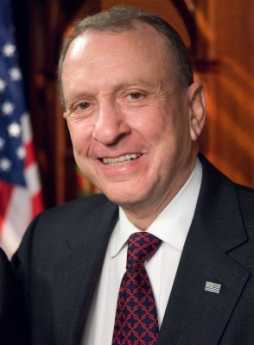
|
| Senator Specter |
The two main actors in shaping the American Republic were George Washington and James Madison. Madison was young, scholarly and largely unknown; Washington was old, famous, and insecure about his lack of academic political education. Both of them knew very well that if Washington really wanted something he was going to have it; what mainly restrained him was fear of looking foolish. But he hated partisanship and conniving, partly as a result of having been the victim of General Mifflin and the Conway Cabal. Washington hated political parties and anything resembling them; Madison was young and uncertain, and briefly surrendered the point. It took about two years of real-life governing for Madison to conclude that political parties were absolutely essential to getting something accomplished. In this, he experienced for the first time those unwelcome "pressures from the home state", with Thomas Jefferson determined to thwart Alexander Hamilton, and Patrick Henry thundering and denouncing any hesitation in going for the jugular vein of opponents. Madison was deeply concerned with making his new nation success and eventually joined Jefferson in the Virginia policy of opposing banks, cities and manufacturing. When Washington saw that Madison was committed to this course, he never spoke to him again. For Washington, honesty was always the best policy, and personal honor is never regained once it is lost. The compromise of 1790 was particularly vexing to their relationship, when Washington's honor and personal finances were used as bargaining chips for moving the nation's capital opposite Mount Vernon on the Potomac River, in return for placating Hamilton and Robert Morris with the assumption of state revolutionary war debts.
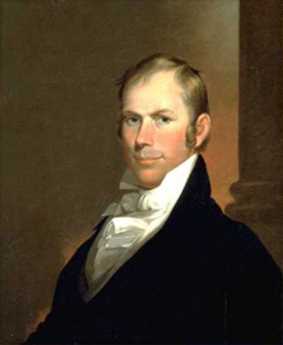
|
| Henry Clay 1811 |
Legislative partisan politics took a violent turn in 1811 when 34-year old Henry Clay was elected to his first term as a member of the House of Representatives. The Senate was less prestigious than the House in those days, and Clay had spent his time as a senator studying the landscape of the House before he made his big move upward. Up until that moment, the role of Speaker was that of mediator and administrator of the rules, partisanship was considered a shameful thing in a Speaker. Young Clay was elected Speaker on the first day of the first session after he moved to the House as a member. Seniority was brushed aside, and this newcomer took over. It takes only a moment's reflection to surmise that a lot of politics had taken place before the House convened. Not only that, but Clay immediately added the power of the Speaker to appoint committee chairmen, to the invisible powers of majority leader. The office of majority leader had not yet been created, but it was not long in emerging that anyone who could assemble enough votes for Speaker was also able to make highly partisan choices for Committee Chairs. Eventually, the seniority system was imposed in part as a reaction to perceived abuses of Speaker power. It is worth a digression to reflect on the role of any seniority system, which as it is clearly seen in labor-management industrial relations, serves to deprive management of promotion power, usually substituting seniority for selection by merit. In the case of the Speaker, the seniority system catapults the power of the Speaker over that of every member of his caucus. To rise in a seniority system for committee chairmen, a member must first be appointed to a desirable committee -- by the Speaker, or by his instructed favorites on the appointment committee. It puts in the hands of the Speaker or his agents the power to humiliate a member by ignoring his seniority; the other members know immediately what that means. To understand the power of this threat, reflect on Woodrow Wilson's famous observation that "Congress in committee, is Congress at work."
Soon after Henry Clay made his dramatic moves, Martin van Buren extended the idea of partisan party politics to the actual election of Congressmen. Much of the hoopla and deceptiveness of subsequent campaigns was invented by Andrew Jackson's vice president. And that included their own deal, in which van Buren worked for Jackson's election in return for a promise that he would be the successor, President. After that came the election of 1848, in which William Henry Harrison was elected as a man born in a log cabin. When, in fact, he had been born in one of the largest mansions in Virginia. That had been approximately George Washington's residence description, too, but it is hard to see Old Stone Face lowering himself to accept any office unless it was offered unanimously.
Compare that with the campaign financing episode which created the urban political machine. The Philadelphia traction king Wm. L. Elkins was narrowly concerned with building streetcar lines along with his business associate P.A.B. Widener; Widener had been a city politician before he got into street cars. One or the other of these two approached the Mayor of Philadelphia with the complaint that it interfered with building streetcar lines to have to bribe every bartender on every street corner. So he made a proposal. It wasn't the money that bothered him, because he could just raise trolley fares to cover it, it was the protracted delays. So, how would it be if the trolley company just delivered a big lump-sum bribe to the mayor? That would give enormous political power to the party boss through the power to distribute or withhold the boodle to party workers. And it would save the trolley company lots of time, while not costing any more than the "retail graft" system. Since then, just about every urban political machine in the country has been largely financed through the macing of utilities.
The downward trend of serial modifications to the Philadelphia Constitution of 1787, should be clear enough without further illustration. If the Tea Parties aren't mad about it, they should be. More likely, however, they are mainly mad about the modern pinnacle of sly tinkerings, plainly displayed on TV during the enactment of the Obama Health Bill. The point was repeated for emphasis in the Dodd-Frank financial bill, in case it is ever claimed to have been accidental. In both cases, 2000 page bills were prepared out of sight and thrust before the Congress with orders to enact them in four hours. If that's a representative government, perhaps we ought to go back to having a King.
Unwritten Constitution
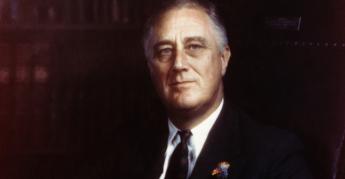
|
| Franklin Roosevelt |
After Franklin Roosevelt was elected to the Presidency four times, the 80th Congress reacted by proposing what is now the Twenty-second Amendment of the Constitution, that two terms are all that will be permitted in the future. The supporters of Roosevelt have continued to argue that the Amendment was a mean-spirited insult to a man who was no longer able to defend himself. In their view, the Amendment implies that Roosevelt wished to be a dictator, in the pattern of most dictators from Julius Caesar or even earlier. That would seem an unfairness to a man who apparently had sufficient popularity to be re-elected for as many decades as he lived. Dictators, by contrast, characteristically have a succession problem leading them to believe realistically a bloodbath might ensue in the aftermath of relaxation of iron rule during a transition. That is indeed the usual case; if there were nothing more to it, this Amendment would not have much justification. That is not all there is to it.
It might well be said that George Washington started an unwritten rule by voluntarily stepping down after two terms since he too could have been re-elected as many times as he pleased. Furthermore, political parties as we know them had not then been invented, so he could not have been motivated by the reasons I now wish to explore. He apparently just felt in his bones that a limited period was best, and the nation came to agree with his opinion. Ulysses Grant and Theodore Roosevelt both seem to have toyed with the idea of longer presidency but retreated in the face of public hostility. Just why the public felt that way is not clear; much was said about Washington's wise words, but that seems unconvincing.
-->As the country has grown in size, the man we elect to leadership is mainly elected for symbolizing the attitudes of the network of acquaintances he brings along to power. What we know as political parties only partly represent that power network. It is composed of those who seek an agenda that is not currently being addressed, plus those who oppose the agenda that is being pursued. When the combined numbers become a majority, the incumbents are replaced, and the cycle then goes on to repeat itself indefinitely. In that sense, the terms of office state a minimum. It is disruptive to replace governance too soon and too often. The Constitution is silent on the other side of it, of how long is too long, probably because there were no useful models to follow in this first democracy of modern times. We have to surmise that Washington reflected on this question for a period of time before he announced his answer with his own example. Eight years is long enough.
Washington surely had ample opportunity to observe the gradual assumption of power by the network of people who actually carried out public policy, to the point where they bitterly resist the loss of their power which is inevitably the consequence of losing their leader. He may have lost his taste for glory but they have not. Indeed, when you can see signs of their rebellion, you know it is time for the whole lot, to go. It is really pretty hard to see the frail, sick, disabled Roosevelt hungering for more power; it was his cronies who did. That he could be persuaded to make the effort is as good as a sign as you can find, that it was well past time for him to retire.
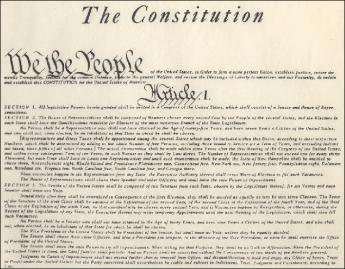
|
| Article Constitution |
We live in an age of aphorisms, called bites of sound. The argument might well be reduced to saying that since power corrupts, there does come a time to throw the rascals out. When the new reforming heroes take over, power will similarly corrupt them in time, so we must throw them out, in turn. It's a system we sort of eased our way into, and after a while, we came to feel that eight years is about long enough to get your reforms reformed, not quite long enough for corruption to become entrenched. And after two hundred years, we finally got around to making it official. Instead of talking about plumbing inspectors taking bribes, or lobbyists paying for Vicuna coats, or drunken congressmen cavorting in fountains with women of light repute, let's go right to the central figure in the controversy, the man who was indispensable even when he was uremic. The example has to do with patent protection, deemed important enough to write into the third Article of the Constitution, even though term limits were left vague.
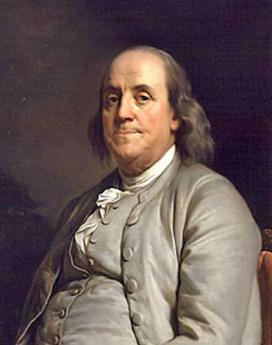
|
| Benjamin Franklin |
Franklin Roosevelt hated monopoly, as do most of the rest of us. He carried this antipathy to the point of opposition to all patent protection for inventions, which Benjamin Franklin felt promoted innovation, but which FDR saw as creating a monopoly. Both tradition and the Third Article stood in the way of his doing much about it, at least overtly. However, he did control the appointment of federal judges, who controlled the enforcement of patents. We are told that all judicial nominees were interviewed privately on their views about patents, and one by one the judiciary was filled with patent-hating judges. Roosevelt, as mentioned, was elected four times, and it reached the point where it was effectively impossible to enforce any patent. The Eighth Judicial Circuit in Minneapolis did not sustain a single patent until 1969 since Roosevelt appointees continued on the bench long after new presidents, even new political parties, had come and gone. Regardless of how we may feel about trial lawyers and Bleak House lawyers, and litigation -- and even ridiculous assertions of patent protection for the human genome or patents for business methods -- the state of patent protection is most readily demonstrated by the number of patent lawyers. In 1950, there were only ten patent lawyers in Philadelphia, 4000 in the whole country. In 2007, there are four thousand patent lawyers in Philadelphia and over a million nationwide. Whether the instinct is to see this as a good thing or a bad thing, it is certainly proof that the Constitutionally protected right of patent protection was snuffed out by a process entirely contrary to Constitutional intent. And that process, whether saintly or utterly corrupt, was only made possible by flouting the traditional limitation on terms of office.
Constitution V: The Unforeseeable
At the 1787 Constitutional Convention in Philadelphia, the Framers had pride in their accomplishment, but great anxieties about how long it would survive. Few of them would have predicted it would survive for several centuries, unmatched in durability by any of its imitators. A dozen wars and unimaginable changes in the nature of American society have not shaken it. It survived two particularly ominous threats, the Civil War, and the 1937 Roosevelt Court-Packing episode, but more remarkably it survived momentous, unpredictable, changes in our political, social and economic environment.
The Invention of Political Parties.
It emerges in retrospect that the founding of the American republic took place during The Enlightenment, a comparatively brief interlude of general allegiance to rational behavior. Almost all efforts at the representative government for thousands of years had previously developed many political parties, and vicious ones at that. The Framers expected that elected representatives would disagree about policy and decisions, but would refuse to win political arguments by personally attacking the political opponents who expressed disagreement. The Enlightenment was world-wide, but the American version had strong doses of Virginia Cavalier courtesty and Pennsylvania Quaker humility of speech. Scarcely anyone in the former colonies was true to the manner born, and so almost everyone was both self-conscious and a little unrealistic about the mannerisms of gentlemen. Mix that with an aversion to the aristocracy recently rejected, and there emerged a hesitation to declare a true gentleman would want to be elected public representative for any reason except sincere desire to serve the public as a duty, and certainly not to seek raw power itself. George Washington was the particular exemplar of this model. Renouncing personal power at the moment of his greatest military acclaim, Washington was outspoken about his hatred of partisanship. Resigning as the victorious leader of the armed forces, his return to private life was an act that exited notice and admiration from the whole world, which had fully expected him to create a throne and sit on it firmly. He soon refused to come out of retirement to accept the Presidency unless it was offered unanimously, and agreed to only one term of office. After he was persuaded to accept a second term, he adamantly refused a third because he wanted to establish a tradition of voluntary transfers of power. Along that line, he was seriously concerned that he might die in office, preventing him from establishing a tradition of peaceful transfer of power. No one dared suggest political parties in Washington's presence, but the moment John Adams became President, partisan ugliness began. And it was Thomas Jefferson who was itching to begin it. Jefferson never considered waiting patiently for Adams to complete two terms, but began attacking him during the first one. However much Washington wanted to establish an enduring tradition of courtliness, his administration during the Philadelphia years now sticks out as a quaint aberration.
So the republic was started and established for at least Washington's term, with the proclamation that partisan politics of the sort universally seen before and afterward was only to be deplored. This period was the ten-year temporary period when Philadelphia was the nation's capital, so the concept persisted in Philadelphia as the dominant local standard for another fifty years. Meanwhile, the rest of the country degenerated into the deplorable politics of the frontier, the ignoble, and well, the gutter. Even after Philadelphia evolved into a serious player of machine and state politics, enough guilt about naked ambition remained to restrain the Quaker State from its normal role as a national political power. James Buchanan was indeed elected president but is believed to have been a failure. Since then he serves as an example of why politics are inherently dirty, not suitable for the ambition of authentic Philadelphians. Digby Baltzell blames much of this on Quakerism; that's a partial possibility, but ignores its lack of application to non-Philadelphia Quakers like Herbert Hoover and Richard Nixon, and its visible watermarks stamped on Philadelphians of all religions.
Not mentioning parties, the Constitution says nothing about their number or management. Since the original language contemplated the election of individuals, it leans toward all-or-none victories, thereby sparing us debate about proportional representation. We expect a two-party system, although we do not forbid more than two. The purpose of a party is to help people get elected, so can he win? is the decisive question in the selection of a party candidate. Extremists in both parties disqualify themselves by this test, so when the election finally arrives, comparatively little difference separates the two candidates, and losers can accept the winner. Our elections are unlikely to be followed by civil war, are more likely to be followed by legislative cooperation. Consider the situation with proportional representation among a dozen parties spread over the political spectrum: in nations that try it, one party seldom wins a majority and must form coalitions after the election results are known in order to achieve that governing majority. A succinct summary of the difference is that Americans make their deals before the election; countries with proportional representation have the election first and make deals later after the electorate is excluded. In the rare circumstance when the public wants the wrong thing, proportional representation is a way to do the right thing against the wishes of the public. While it is possible to envision a good outcome from such a situation, it is not easy to imagine public approval of it.
The Mysteries of Property
Everyone was once a nomad. When vast unoccupied land stretched in all directions, ownership meant very little; everyone moved at will. A particular water hole had importance, perhaps, but ownership of it merely meant fighting off others who came near; tribal ownership was a matter of having enough friends to help exclude intruders. If the tribe moved away and came back, intruders again had to be thrown out. This was essentially the situation of native American Indians when the Europeans arrived.
Conventions of land ownership existed under English common law in 1787 but were only a step better organized than the Indian conventions. All land belonged to the king, who might cede large estates to loyal nobles, but could also take it back if the vassal proved disloyal. The Magna Carta and the English Civil War could be viewed as steps in the disruptive process of eventually ceding portions of the King's land to individuals permanently, to have and to hold. The concept of private property became embedded in English common law and was carried over into our own Constitution, although the awkwardness of Indian rights created an incentive to be a little vague. English common law was not so much transferred into our system as recognized to "inform" it, a characterization which allowed the Judiciary to adopt, modify or ignore the awkward parts. Although the rules were imprecise, the Framers of the Constitution and John Marshall's court created a hybrid system, with enough flexibility to deal with remnants of the two preceding theories of land ownership, the farmer and the cowboy. Pre-revolutionary Royal caprice was frozen at the moment of independence, followed by successive recorded transfers through an unbroken chain to the present. If you could establish your position to the satisfaction of the courts, it was your land, your property. This seems to have been the basic model the Framers envisioned when they wrote the Constitution and served as a template for other kinds of ownership when they wrote of the sanctity of contracts. Because this uniform theory of ownership contained some delicate threads of reasoning, well recognized to conflict with the attitudes of the earlier Indian owners, and a little stretched when extended to concepts like intellectual property, it was essential to establish it as uncontested. Land ownership at that time was the main place to store wealth, and transforming a limitless continent into the useful property was the main route to acquiring wealth. Money in the form of currency was a tool for facilitating wealth transfers, banking was a step removed and remained contentious for a century. The property was wealth, and more sophisticated definitions of wealth were treated as property organized around the principles of real estate. When the Framers spoke of the sanctity of voluntary contracts they also had in mind preventing the recent abuses of debt forgiveness under state legislatures responding to unfettered majority rule. If the chain of ownership broke at any point, and particularly if contracts were unenforced the Framers had reason to fear the country could fall apart.
The certitudes of the Eighteenth century were also the certitudes of the Nineteenth; and even for most of the Twentieth century, those who challenged it were regarded as nuisances, intellectual triflers, perhaps Bolsheviks. The courts, however, began to observe evolving ideas of society conflicting somewhat with this central core of our law. Small businesses protested the unfairness of competing with big business, unrestrained by governmental antitrust laws. Labor unions rebelled at the situation of worker powerlessness in their eternal struggle for higher wages against huge companies intent on reducing costs. Private companies could not possibly compete against businesses run by the government, but perhaps it would be more profitable for all businesses to be run by the government. One by one, foreign socialist and communist countries have tried it and were competitive failures, but perhaps Singapore and China, or Denmark and the Netherlands, have perfected government ownership to a point where some corporate state could impoverish us if we persist in the old economic model. So far, it has not been necessary to argue justice and logic; the economic failures of other systems make adoption of their legal ideas laughable.
Nevertheless, the premise of unlimited open land is disappearing. Only 2% of workers in the economy work in agriculture. If the land is no longer the unwritten monetary standard, perhaps its requirements should no longer be the tentpole of the legal system. Perhaps the government has a legitimate role in health care, support of the arts, support of the poor and retired, education of the young. An underlying concept seems to be that certain economically unprofitable but desirable activities will not flourish in a property-based economy unless they are identified politically and reimbursed by taxation. Perhaps in an information age, the government is the logical and most efficient management of information. Perhaps if the government interfered more in private transactions, society as a whole would benefit. It can be difficult to tell how much this sort of reasoning is based on changing concepts of private ownership, and how much is a claim of collective rights; the two visions tend to merge in weakening individual control of the property, while enlarging public claims to the same property. Something called Society is claimed to exist and claimed to have rights.
This assault on old attitudes currently achieves prominence in the Green revolution, where residents of urban skyscrapers feel passionately about swamps and mountain tops they have never seen. If an eagle roosts on a farmer's land, somehow it is not the farmer's eagle, it is everybody's eagle. Green revolutionaries need to become far more explicit about their rights to the private property of others if they hope to convince judges that they have a case, but their ardor is not deniable.
Revising, Amending, and Skirting The Constitution

|
| Tiananmen Square |
In some foreign countries, people who dislike the government about some issue wait for a clear day and go in the streets to riot. Some of our own younger people who spent a little too much time abroad have likewise occasionally called their friends on a cell phone and agreed to pour out into our town squares to protest. When you try that in Tienanmen Square (1989) or similar places, machine guns can suddenly end the meeting (2,500 dead). We had the Boston Massacre of 1770 (5 people killed) and Kent State of 1970 (4 people killed), where newsmedia somewhat over-dramatized the risk involved. In general, most Americans feel public demonstrations are neither very dangerous nor very useful.
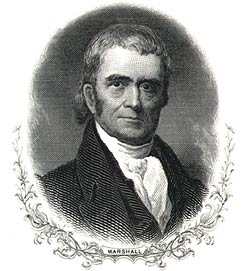
|
| Chief Justice, John Marshall, |
One measure of Constitutional effectiveness can be found in just this public attitude. The citizenry has been told and generally believe that methods for addressing grievances have been provided in the legislative, judicial and executive branches, ultimately leading to the Constitution itself as the last point of appeal. The 1787 framers in Philadelphia probably had this design in mind, but it was not until the third Chief Justice, John Marshall, made it his life's work that the elegance of the system became widely appreciated. The Constitution is the capstone of our system; every citizen's grievance can be appealed within it. If things are sufficiently dire, even the Constitution can be changed.
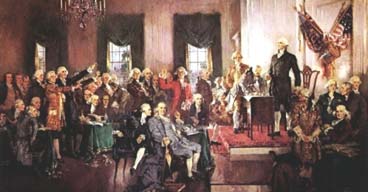
|
| second Constitutional Convention |
A second Constitutional Convention could be called, but most lawyers shudder at what chaos might emerge from making multiple changes without waiting to see how a few worked out. For practical purposes, therefore, amending the Constitution is the last recourse when the government goes astray. Amendments don't easily succeed; hundreds were proposed in two hundred years but only two dozen were adopted. In totalitarian countries, millions of amendments might be envisioned, but either nothing significant would be adopted, or nothing significant would be enforced. In our country, it is sufficiently difficult to succeed that frivolous or ill-advised proposals are discarded or modified into less extreme forms by "due process". But enough amendments do succeed to keep the populace out of street protests. Amendments can succeed, if you and the proposal are really serious. So far the only real appeal beyond an amendment has been another amendment.
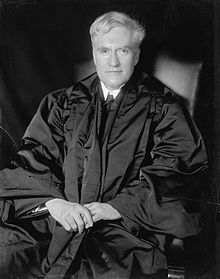
|
| Judge Benjamin Cardozo |
The step provided before an amendment is to appeal to the Supreme Court. That happens about a hundred times a year, with the generally satisfying outcome. Perhaps the only serious criticism of the Supreme Court is the difficulty of "gaining cert.", which is the process of petitioning the Court to take the case, by granting a writ of certiorari. Only about 2% of petitions are allowed to present their arguments, and the Court has protected itself from overwhelming volume by limiting its caseload to instances of conflicts between circuits, and cases involving sovereignty of some sort. For such a selective process to remain acceptable, implicitly the rulings of the various Circuit Courts of Appeal would also have to enjoy general approval. That such is the case is evidenced by the fame and distinction reached by certain Judges of Appeals Courts, like Benjamin Cardozo, Learned Hand, and Richard Posner. In Cardozo's case, he was finally appointed to the Supreme Court, but at such an advanced age and short tenure that his Supreme Court reputation is rather modest; he achieved his reputation as an Appellate Judge. The failure of Robert Bork and several others to achieve Senate ratification illustrates a somewhat different version of the same issue: that the higher courts, not just the Supreme Court, are generally held to do as good a job as human systems allow; supremely gifted judges are not exclusively in the Supreme Court. As you go lower in the court system, more dissatisfaction can be heard, ultimately reaching slander accompanied by knowing grins, such as "You show me a hundred thousand dollars, and I'll show you a Philadelphia judge." Whenever criminals meet justice, such mutterings can be expected. But the point to emphasize is that there are no muttered challenges to the contention that the higher you go in the Judiciary, the more distinguished the judge is likely to be.
That's the federal judiciary, of course. State judiciaries are held in less esteem, although they have the power to put people in jail forever, award multimillion-dollar verdicts and modify the climate of business. Somehow, the prestige of these judicial systems has eroded to the point where a joke can be heard that being a state supreme court justice is a pretty good way to start a law practice. It's hard to know whether prestige has disappeared because of performance, or the reverse. Whether the steady erosion of state legislative power by Congress has resulted in a parallel loss of status in the judiciary is a serious question. In that case, of course, there is very little the judiciary itself can do about it.
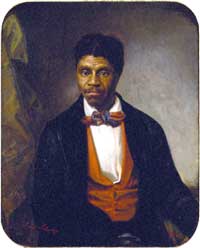
|
| Dred Scott |
The Congress shall have power to .........Regulate Commerce with foreign nations, and among the several states, and with the Indian Tribes
just exactly as it did when for 150 years everyone referred to it as the Interstate Commerce Clause. What has changed is the declaration that Congress may regulate all commerce of any sort, without fear of challenge in the court system. Whatever chances Roosevelt might have had to amend the Interstate Commerce Clause before this uproar, it is clear he could never have achieved its amendment afterward.
The second instance of circumvention is related to the same episode. The insurance industry was highly displeased to find itself regulated by federal agencies, and within six weeks successfully lobbied the McCarran Ferguson Act into law. Congress could not overturn or make an exception to a Supreme Court ruling, but it accomplished the same result by prohibiting federal agencies from taking action in the business of insurance. To maintain regulation for insurance, all of the various states then passed laws establishing insurance regulatory mechanisms, and insurance regulation migrated back to the states. It is now difficult to know whether the same exception could have been created by then re-amending the Constitution. But since the advent of wide-spread current dissatisfaction with health insurance, it pretty clear that an amendment imitating McCarran Ferguson would never pass, today.
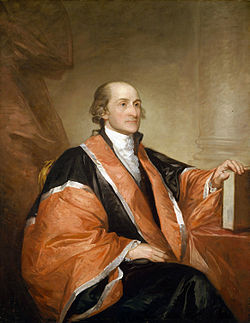
|
| John Jay the Chief Justice |
Finally, the Eleventh Amendment may not have been such a good idea, either. The dispute in 1793 (although it avoided saying so) was about compelling Americans to pay just debts regardless of the person they owed them to. And that included paying debts to former Loyalists. John Jay the Chief Justice was sent to England to negotiate a treaty to settle this matter, but after both nations ratified the treaty, state laws were passed to supersede it. From this evolved the issue of whether a treaty takes precedence over American laws, and the ensuing battle firmly established the preemption of Congress by treaties. Two hundred years later, when the British are our allies and Revolutionary debts fade in significance, many people are uneasy about such clear-cut deference to treaties. Our unwillingness to join the League of Nations, and sign the Kyoto Agreement, or enter into many other international cooperative ventures are related to uneasiness about the unintended expansive power inherent in the Constitutional location of a foreign treaty, enacted at a time of limited communication. We are doomed by demography to perpetual minority status in world forums but forced by economic success to exert leadership or become a target. There is no immediate emergency, but the prescribed generalities of enacting or enforcing treaties need sober reflection in the era of instant communication.
Unconstitutionality of Otherwise Desirable Laws
Note: James Madison, the central figure in the design and meaning of the Constitution, the only person allowed to keep a journal of the deliberations, and the main author of the Federalist Papers which explain and defend the final product, was eventually elected President of the United States. As such, he was acutely aware of the intention of the Constitution's limitation of federal powers, which particularly extended to prohibit the Federal Government from doing otherwise desirable things. On November 3, 2010, the Wall Street Journal republished part of Madison's veto message of March 17, 1817, in which he reminds the Congress and the nation that it was unconstitutional for the Congress to do prohibited things, thereby assuming unenumerated powers.
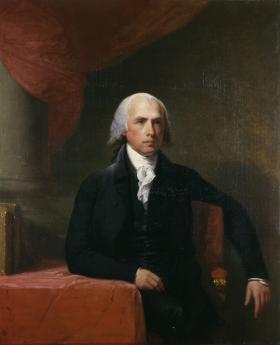
|
| President James Madison |
"The legislative powers vested in Congress are specified and enumerated in the eighth section of the first article of the Constitution, and it does not appear that the power proposed to be exercised by the bill is among the enumerated powers, or that it falls by any just interpretation within the power to make laws necessary and proper for carrying into execution those or other powers vested by the Constitution in Government of the United States."
"The power to regulate commerce among the several States" cannot include a power to construct roads and canals, and to improve the navigation of water courses in order to facilitate, promote, and secure such a commerce, without a latitude of construction departing from the ordinary import of terms strengthened by the known inconveniences which doubtless led to the grant of this remedial power to Congress."
To refer the power in question to be "to provide for the common defense and general welfare" would be contrary to the established and consistent rules of interpretation...It would have the effect of subjecting both the Constitution and laws of the several States in all cases not specifically exempted to be superseded by the law of Congress... Such a view of the Constitution, finally, would have the effect of excluding the United States from its participation in guarding the boundary between the legislative powers of the General and the State Governments..."
I am not unaware of the great importance of roads and canals and the improved navigation of water courses, and that a power in the National Legislature to provide for them might be exercised with signal advantage to the general prosperity. But seeing that such a power is not expressly given by the Constitution, and believing that it can not be deduced from any part of it without an inadmissible latitude of construction and reliance on insufficient precedents; believing also that the permanent success of the Constitution depends on a definite partition of powers between the General and the State Governments, and that no adequate landmarks would be left by the constructive extension of the power of Congress as proposed in the bill, I have no option but to withhold my signature from it.."
Postscript: This veto was the last act of Madison's term in office, and probably does not adequately describe the problem or even Madison's view of it. The Louisiana Purchase had dramatized some awkward features of strict construction of the Constitution in areas never before considered or discussed. Albert Gallatin had earlier arranged the workaround of treating the limitation as applying only to the financing of interstate transportation arrangements and was starting the process of what we now call the "Living Constitution" by progressive circumvention. While following Madison's reasoning, he made the unfortunate choice of circumvention in preference to confronting issues directly through the Amendment process. The Tea Party movement of 2010 could be evidence that this choice is regarded by many as unfortunate. The Constitution has probably not adequately appraised the tendency of legislation to achieve final passage quite near the congested end of an electoral term, leaving little time to respond to Congressional action with the intentionally cumbersome Constitutional Amendment process. If there is a turn-over of party control at that time (which is usually the holiday season), a successful outcome appears still more unlikely in the time available. Fixing such an inadvertent technical problem would not appear to be difficult, and a Blue Ribbon study committee is suggested.Constitutionality of the Monetary System
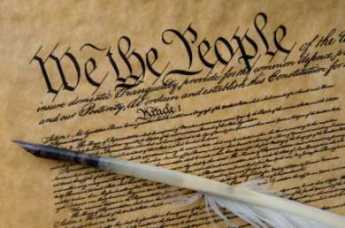
|
| The Constitution |
In noting that our Constitution has lasted for over two centuries, we assert that this simple short document has largely anticipated everything important to anticipate, including the Industrial Revolution, atomic warfare, and the Information Age, to name a few. When an occasional issue arises that is not only unmentioned in the Constitution but where no one is certain what to do, our system leaves us spiritually adrift. Such an issue is found in o0ur monetary system, where we have been wandering for two hundred years.
The founding fathers worried a great deal that popular majorities would abuse minorities, particularly in the case of the majority poor people voting themselves the property of minority rich ones, or that debtors in the majority might dishonor the rights of creditors. Although we have developed a welter of laws about debt and creditors, bankruptcy and taxation, they are if anything too specific. What is lacking is a few general words in the Constitution about the principles of credit and money. The problem now is the same as it was in 1787; we don't know what to say.
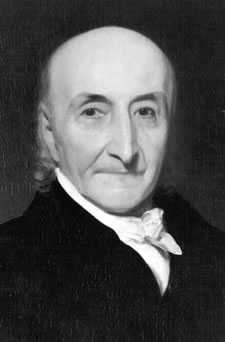
|
| Albert Gallatin |
For a very long time, some very well educated people were strongly opposed to the creation of a bank, later to mean a banking system. Alexander Hamilton's proposition that a "national debt is a national treasure" was greeted with horror by several Presidents, as well as by Albert Gallatin, one of the most sophisticated financial thinkers of the time. Underlying this perplexing reaction to the simple proposal to create a bank was surely the perception that making the Federal Government into a substantial debtor creates a powerful ally to all debtors in their eternal struggle with all creditors; the outcome of such an unequal struggle would inevitably be to the disadvantage of creditors. In common parlance, the word capitalist seems to imply a creditor. It took a very long time for it to become understandable that debtors, too, were essential beneficiaries of a capitalist system, but that idea still often meets with dissent. However, when millions of the world population belong to religions which prohibit the payment of interest, it should not be surprising to find many Americans who cannot get their heads around the idea that debtors and creditors need each other to an equal degree.
In the case of inflation, governments have always been somewhat favorable to debauching the currency. Naturally, a major debtor hopes to repay its debt with cheaper money. Since it has more or less always been necessary to use police powers to maintain a common currency, Kings and governments have long been in control of money, whether that means gold bars or beaded wampum. And for the same length of time, governments have been discovered bending the rules in favor of themselves. Bronze has been substituted for gold, the edges of coins have been shaved, the printing presses print paper money unrestrainedly, and the consumer price index has been manipulated to encourage inflation. Political parties have sought votes from debtors by promising to regulate banks, promote silver as a substitute for gold, disadvantage foreign competitors, inhibit or manipulate the value of the currency on foreign exchanges.
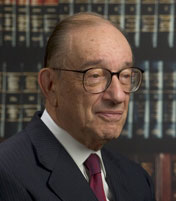
|
| Alan Greenspan |
For forty years we have operated without any fixed standard for money. Money for all that time has lacked any physical representation or discipline. Money has become a computer notation. At first, it was based on calculations of monetary aggregates, a bewildering concept promoted by Milton Friedman. More recently, it is entirely based on inflation targeting as promoted by Alan Greenspan. With a target of maintaining steady prices, an inflation rate of 2% is set as a specific target for the Federal Reserve. If inflation falls below that target, more money is created; if it rises above that level, less money is created. How much there is of it does not matter; it's beyond calculation. Although this simplified description fills almost any listener with doubts, it seemed vindicated by seventeen years without a notable recession. Even though events beginning in 2007 raise pretty serious doubts, it may still prove to be the best possible monetary system.
Even though this most fundamental of all commercial issues cry out for a simple principle to be stated in the Constitution so that neither populist congressmen not rapacious financiers can ruin us, it is not presently possible even to imagine what a new Constitutional amendment would, should or even could say. Meanwhile, some immense power rests in the hands of shadowy figures whom we blindly trust, for lack of a better idea about how we should select them or what we should instruct them to do.
Owen Roberts: A Switch in Time
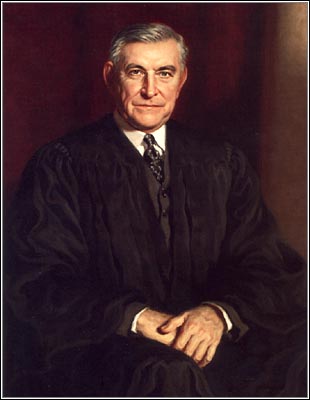
|
| Owen Roberts |
To this day, no one knows quite what to make of Owen J. Roberts, founder of one of Philadelphia's largest law firms. He was Prosecutor of the Teapot Dome scandal, Dean of the University of Pennsylvania Law School, Republican appointee to the U.S. Supreme Court. But then, he abruptly became the source of one of the most radical revisions of our system of government since the Declaration of Independence. Nothing in his prior career and nothing afterward in his subsequent civic-minded retirement from the Court seemed to suggest any radical turn of character had taken place. He has been compared with a famous baseball pitcher who threw right-handed or left-handed at will, unexpectedly, capriciously, who knows why.
The issue went far beyond one clause in the Constitution, but the commerce clause was the focus point. Under the limited and enumerated powers allowed to Congress by the Constitution was :
The Congress shall have power to regulate commerce with foreign nations, and among the several states, and with the Indian tribes.
That used to be called the interstate commerce clause until the Supreme Court announced its decision in the case of Wickard v. Filburn. When linked with the Tenth Amendment, granting to the States the power to regulate everything not specifically granted to the Federal government, this clause in the Constitution was universally taken to mean that the States had control of commerce within their borders, while Congress would control interstate commerce. Wickard v. Filburn took all that power from the states and gave it to Congress, which henceforth would regulate commerce. John Marshall had certainly triumphed over the hated state legislatures, but the Supreme Court suddenly lost its power to overrule Congress, too. One side had won the old argument, by silencing the umpire. No wonder Franklin Roosevelt started annual celebrations called Jefferson-Jackson Day dinners.
To describe the background: The 1929 stock market crash was quickly followed by the economic Depression of the 1930s. Nothing of this magnitude had been seen before, and there was a stampede to try new and untested solutions. Even government action which actually worsened economic conditions was felt justified if it conveyed to the frightened public the image that its leaders were taking firm action. Since Socialism and Communism were among the solutions grasped for, many unfortunate actions were felt justified as a way to control the Bolshevik threat. Many of these New Deal actions were declared unconstitutional by the Supreme Court since they involved sweeping revisions in the way all commerce, internal to the States as well as interstate, was conducted.
The Depression and financial panic continued through the 1936 Presidential election, which Roosevelt won in a landslide. Immediately after the start of the new term, he announced a plan to increase the number of Justices on the Supreme Court, appointing new ones more to his liking. He was at pains to point out that seven of the nine life incumbents had been appointed by Republican Presidents. This was, of course, the restraint intended by the Constitutional Convention, and the idea of packing the Court with new appointees was exactly what Jefferson and Jackson had tried to do.
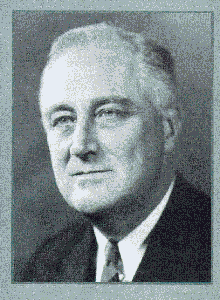
|
| Franklin Roosevelt |
In the meantime, the case of Filburn, a dairy farmer, came up. One of the New Deal agencies had assigned him a quota of 200 bushels of wheat he could grow on the side, as part of an effort to raise wheat prices by reducing supply. Filburn had raised 400 bushels, but consumed the extra wheat for his own personal use, hardly a matter of interstate commerce. The Court had repeatedly declared laws like this to exceed the interstate commerce limitation and were thus unconstitutional for the Congress to enact.
Well, Owen Roberts changed his position, Filburn lost his case. Forever afterward, this change of position was referred to as the switch in time, that saved nine. Since that time, the Court has rarely had the courage to rule any action of Congress unconstitutional, even though it is true that Congress promptly and resoundingly rejected the court-packing proposal.
And furthermore, the power of the state legislatures has shriveled because all commerce (except insurance and real estate) is federally regulated, with a corresponding vast increase in the size of the Federal bureaucracy, as Congress relentlessly pushes to intervene in commerce among the several states, formerly known as the Interstate Commerce Clause. Franklin Roosevelt had a certain right to gloat at Jefferson-Jackson Day dinners.
A few weeks before he died, Owen Roberts had all his papers burned. Apparently, we will never know whether the present outcome was the result he had in mind. Since he was later the author of Alfred Barnes' will, which strenuously sought to prevent the transfer of the Barnes art collection to Philadelphia County, anything written by a lawyer can apparently be reversed by other lawyers. One would have supposed that either the Original Intent would govern, or else the opinion of the Supreme Court on what the Constitution means, would prevail. Franklin Roosevelt showed us there is a third possibility: the President can overrule the Court by intimidating it.
Evolving Constitution
Unwritten Features of the Constitution
 Considerable anger is sometimes directed toward Judges who find unintended provisions in the Constitution. On the other hand, James Madison and some other Founding Fathers were careful to design the Constitution to create outcomes that are far from explicit. 
|
In their early writings, James Madison and the Federalists who participated in drafting the Constitution repeatedly emphasized their allegiance to republican ideals, republicanism, and a republican form of government. This sounds a little odd today, since obviously they were not alluding to the present Republican and Democratic parties, which had not been created. It seems natural to us to regard a republican form of government as a gradual extension of a democratic one, when the size of the electorate grows so large it cannot be readily managed by voice votes in a town meeting, when therefore it becomes necessary to select proxies, or representatives. That description greatly underestimates the subtlety of the Founding Fathers.
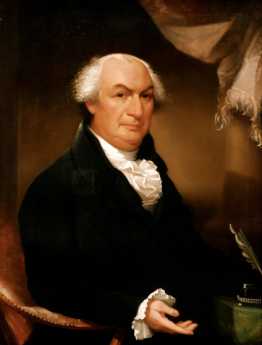
|
| Gouverneur Morris |
Two centrally important members of the Convention, James Madison and Gouverneur Morris, felt especially strongly about a feature that does not occur to many others. When the voters in a particular district pick a representative, they are generally trying to choose one who will not only reflect issues of local importance, but one who will be able to persuade representatives of other districts to vote favorably. In this way, representatives tend to be selected who are taller, handsomer, more intelligent, richer, and more famous than the average person in the district being represented. Not by much, perhaps, and sometimes not at all. But as a general thing, the election of representatives tends to create a House of Representatives who are superior in certain ways to the average person being represented. When candidates and political parties engage in public combat, an impression is given that "politicians" are low characters, but that is in fact not usually true. Many factors will discourage the best candidates from participating in disagreeable contests, and many stratagems are employed in an attempt to elect the worse of two candidates. But it is seldom the case that a successful candidate is less attractive or talented than the average person in his district. Republican governments almost always are composed of more distinguished persons than average, exposed to greater temptations perhaps and subject to more detailed scrutiny.
Madison was so taken with this idea that he proposed the Senate should be made up of people drawn from the House of Representatives in a second round of voting, thereby further purifying the result. For various reasons this approach was not adopted by the Convention, but it does have a logic to it, and it clearly illustrates that Madison was looking for results not always explicitly stated. Gouverneur Morris, on the other hand, was openly enthusiastic for this outcome, because he perceived that the government would be largely concerned with the rules of commerce and therefore the selection process would likely lead to a Congress that was richer and more able in those qualities of importance to commerce. On the one hand, America would gain national advantage in the Industrial Revolution then under way, and it would anyway be highly desirable to select richer people. In his later years, Morris was given to blunt and open preference for the smart set, and is often described as a covert aristocrat. At the time of the Convention however it seems likely he was making a perfectly valid point which had escaped many of his colleagues.

|
| James Madison |
Both Madison and Morris were seriously concerned about a flaw in the republican form of government. They thought it obvious there would always be more poor people than rich ones. Without some effort to rebalance things, the poor would inevitably destroy the common good by using their numerical strength to redistribute wealth from rich to poor. In doing so, everyone would be worse off, even the poor. The poor were more likely to be uneducated and thus more likely to put their own enrichment ahead of almost any other issue, using their own grievances as a justification. There was almost universal agreement among other members of the Convention, because it was well recognized that the main need for a new constitution had grown out of the egregious conduct of state legislatures under the Articles of Confederation, particularly in watering the currency with paper money, and profligate use of debt forgiveness. It would be impossible to have a prosperous country if it suffered from instability, destruction of merit incentives and respect for the property of others. If debts were capriciously forgiven, no one would lend. With paper currency printed indiscriminately, savings would be impossible.
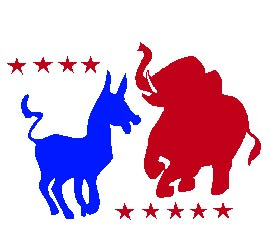
|
| Political parties |
Accordingly, the Convention set about balancing these innate tendencies as well as it could. There was general agreement that election districts with larger population size tended to produce better candidates. Not only employing the reasoning that in a larger district it would be harder to elect an unknown, insignificant person, they felt they could also see examples justifying faith that a larger number of competing internal interests would hold each other in check within the person of their elected representative. An indirect way of accomplishing this was to limit the total number of districts while also providing they be of equal population. Political parties were soon to come forward as a way of raising campaign funds, but nevertheless a person of greater means would have an advantage in a larger district, and persons of greater means could be expected to have greater talents, or would in any event be more likely to resist the pressures for redistributing the wealth of the rich. Members of the Senate were selected by the state governments (at least, as long as state assent was necessary for ratification of the Constitution), but the 17th Amendment changed that to popular election, with a clear resulting decrease of state influence and power. On the other hand, a heavy majority of Senators in the 21st Century continue to be independently wealthy, thereby still accomplishing two original objectives of the founding fathers at one stroke.
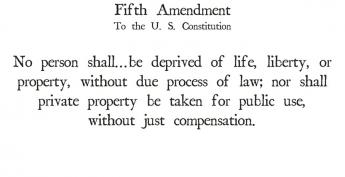
|
| 5th Amendment |
The original working concept of the Federalists was that the skills and prestige of the rich and powerful would promote the owners of property into elective office, and their power would be joined to that of judges, presidents, cabinet officers, and military officers to form an effective counterbalance to the majority voting power of the poor or others who lacked property to protect. The Federalists differed with the anti-Federalists on the source of danger to be guarded against; one group feared impetuous and ignorant greed inciting the multitude, while the other group mainly feared corruption and power-hunger among the powerful few. But both political parties acknowledged that each potential danger was realistic to some degree, and hence there was reason to hope both sides could agree to a balance of power as a sensible check on each other. True, the Fifth Amendment's "takings" clause did specifically provide for just compensation for private property seized by government under Eminent Domain, and the Eleventh Amendment protected state governments against private lawsuits in Federal court, but these seem rather feeble additions to the protections against potential tyrannies of the unpropertied majority, as soon to be seen in the revolutionaries of France. Thus an initial assessment would have to be that protection of the minority with property against legislative assault by the unpropertied majority, was only strong in the short run. But it was likely to succumb in the long run to majoritarian tyranny, as the less educated gradually learned how to use their voting power. To strengthen the balance, therefore, resort was made to limiting the voting franchise to owners of property, and specifically to freehold property, without debt. There was shrewdness to this idea, since it hints at a perception that future class divisions might not lie between rich and poor, but between creditors and debtors. The voting exclusion of females, children and slaves was surely irrelevant to the main issue, based on the 18th Century assumption that any votes from those excluded would anyway be passive, dominated by the male head of household. In any event, the limitation of voting power to freehold property owners was apparently a step too far, and did not last long.
It is not certain how consciously another important feature was considered. State legislatures prior to the Constitution were held in such disdain, that stripping them of the power to corrupt truly important issues was almost a universal goal. Awkwardly, a peaceful transfer of state power over the military and the currency could not be accomplished without securing the agreement of the states who had to ratify the Constitution. This was accomplished by specifying the strictly limited powers of the new Federal government, and ceding control of everything not specifically mentioned, back to the states. One by one, the functions which were vitally important were debated and defended in detail; the list was short. Everything else remained under state control. To go about things in this way had one significant advantage over complete federal control, and Madison specifically anticipated it. If a state government abused its power, the victims of that abuse could escape by relocating to a neighboring state. The potential abuse easiest to understand was a burdensome tax rate. But all of the commercial rules of the new entities called corporations were even more to the point, since rich people could move whole factories and businesses if they perceived enough grievance at home. Powerful people had ways of getting the attention of state governments, their U.S. Congressmen and Senators, and the constituents who voted for them. In New Jersey at present, 4% of the taxpayers pay 76% of state taxes; it is easy to demonstrate that the 4% are moving to other states about as fast as they can. Whether by industry or individually, the residents of a state know very well what their alternatives are in other states, and corporations can negotiate them directly. Whether to bluffing or actually moving, state politicians respond to the threat and which has considerable indirect effect at a national level. The system of checks and balances extends far beyond the words of the Constitution, and well beyond the rules of the Federal government. Its unwritten power extends beyond the control of a handful of Supreme Court justices, spatting over original intent. Its potential weakness, of course, lies in the Court's relative inability to protect what is not stated to be any of its business.
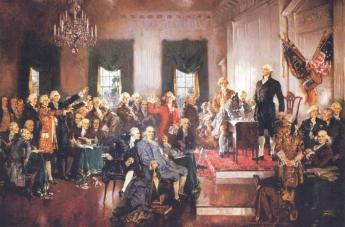
|
| 1787 founders |
One final point about the unspoken cleverness of our Constitution. Some of its most important powers were either unrecognized or intentionally unmentioned by its originators, to whom we look for original intent. After two centuries, we can see as they could not, that it was not merely the first time thirteen sovereign states gave up their power voluntarily and more or less cooperatively. In two hundred or more years, it begins to look as though nobody else can even imitate it successfully. One therefore hesitates to suggest changes of any sort, for fear some unrecognized balance will become unbalanced. Madison believed that increasing size leads to better government and better candidates for office; few would dispute that our Federal government generally does a better and more professional job than the fifty states which make it up. But stop to consider the United Nations. Invested with as much enthusiasm and much more idealism than our 1787 founders, the U.N. flounders and fumbles, and after fifty years must still be assessed to be a failure. Madison would seemingly have predicted that a bigger organization would be even stronger, even electing an assembly of giants. It hasn't worked out that way, and it is impossible to define what it lacks that the American Constitution has in abundance. By itself, this is the strongest possible argument for what is called original intent, but is really just a fearful plea to -- leave it alone.
Lowering the Taxes on Corporations
In the early years of the 21st Century, Ireland lowered taxes on corporate profits to a 12.5% rate, far lower than neighboring countries. Whatever else it did, it promptly encouraged corporations in Germany, Denmark, the United Kingdom, and other neighbors -- to move headquarters to Ireland where taxes were so low. Ireland is primarily rural, and a housing shortage developed in the cities as workers migrated to take advantage of the new jobs. Home prices went through the roof, mortgage applications overwhelmed local banks, who promptly re-sold mortgages to foreign banks. Sound familiar? It caused a housing bubble and then a horrendous international financial crisis. The European Union is financially and politically strained by the consequences and threatened to break apart over it.
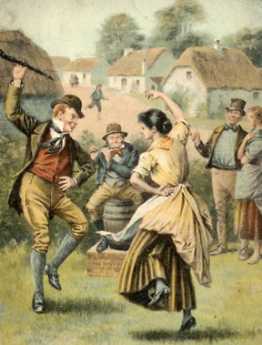
|
| Irish Jig |
That sounds pretty bad and should be a lesson to others. What Canada and a number of the individual United States got out of it was mainly this: if you lower corporation taxes, it causes prosperity. And so it might if politicians would do it gradually and moderately. Gradually and moderately are unfamiliar words in politics. Furthermore, there has long been a fundamental unfairness in taxing corporate profits twice -- once when the profits are made, and a second time when dividends are paid to shareholders. But it is obviously dangerous business, particularly when the governments involved are inexperienced. Canadians started talking about lowering their taxes to 16.5%, and no one could say whether that is a safe level or not. Within weeks, twenty-nine states with Republican governors were sending up trial balloons about joining this movement, and Governor Mitch Daniels of Indiana was much in demand as a consultant, and maybe a Presidential candidate, because Indiana had lowered corporate taxation some time ago, with favorable results.
This was exactly the sort of behavior James Madison had in mind when he designed the United States Constitution; it gave the people a way of disciplining overbearing state governments. Raise our taxes, and we will move. So there are strong arguments that these governors are approaching the right thing, and equally strong indications that everybody had better be plenty careful how this is approached.
The basic idea is good; double taxation should stop, and there is nothing in Madison's Constitution to prevent the Governors from doing what they say they would like to do. So how's this for a suggestion: if this movement gets started, let's take the opportunity to reduce all corporate income tax to zero. If everybody has the same zero rate, the incentive to migrate will disappear, and that's a good thing.
But if a major revenue source for the states disappears, what will take its place? At that moment of what would look like a crisis, it would be time for a national reconsideration and revision of the tax codes. And that would be an even more desirable outcome, provided it is done in an orderly and sensible way.
Corporations: Property, but also Immortal Persons

|
| Proprietor House |
The Proprietorship of West Jersey is the oldest stockholder corporation in America. Devised by William Penn it has been doing business in Burlington, New Jersey since 1676. The Proprietorship of East Jersey may possibly have been created slightly earlier by William Penn, but recently dissolved itself, thus leaving a clear path for West Jersey to claim to be the oldest. For a hundred years before 1776, corporations were devised by the King through royal charters, and for a century after 1776, most state legislatures passed individual laws to create each corporation, one by one. Consequently, there were a great many variations in the powers and scope of older corporations, with a heavy emphasis on the purpose to which the business was limited. Eventually, so many corporations were created that a body of law called the Uniform Law of Corporations simplified the task of incorporation for the legislatures. The Proprietorships of East and West Jersey would now probably be described as real estate investment trusts (REIT), but the Uniform laws now tend to diminish the emphasis on corporate purpose. It is now common to have a corporation proclaim the ability "to do whatever it is legal to do."
Many voices have been raised in opposition to corporations, largely claiming unfairness for a large and established corporation to compete with newcomers, especially small newcomers striving for the same line of business. Because of its immortality, a stockholder corporation can achieve dominance no individual could hope for, while because of its multi-stockholder ownership, it can generally raise larger amounts of capital. Moreover, because of its size and durability, a corporation can become more efficient and offer the public lower prices and higher quality. As much as anything else, a corporation can generally hire more employees and pay them higher wages; as even the unions admit, corporations create jobs, jobs, jobs. No doubt, state legislatures are attracted by the tax revenue derived from major corporations, but the quickest way to stimulate the economy has repeatedly been found to grow out of lowering corporate taxes. Since there is scarcely any purpose of creating a for-profit corporation unless it eventually pays its stockholders some kind of dividend, all corporation taxes have the handicap of double-taxation for a fixed amount of business. The Republic of Ireland recently lowered its corporate tax rate severely and triggered so much new corporate activity that it inflated and destabilized its whole economy. The result was a dangerous economic crisis, but politicians privately and world-wide silently derived only one real conclusion: lower your corporate taxes if you are looking to stimulate jobs, jobs, jobs.
The corporate model of business thus looks pretty safe, in spite of envious criticism, and is what most people mean when they speak of capitalism. The Constitution had the intention of extracting Interstate Commerce for the Federal Government and leaving the regulation of every other business to state legislatures. The Roosevelt Supreme Court-Packing dispute of 1936 twisted the meaning of Interstate Commerce to mean almost all commerce, but Congress wasted no time specifically exempting the "Business of Insurance" from federal regulation and returning it to the state legislatures in the 1945 McCarran-Fergusson Act. Although the matter remains one of some dispute, it is roughly correct to say that all commerce is federally regulated, except insurance. The corporation is nevertheless usually a creation of some legislature, and legislators have wide latitude in regulating them. To illustrate, in the early days of a banking corporation, the Bank of Hartford was delayed in receiving incorporation by the strong legislative suggestion that a closed stockholder list would result in refusal to incorporate them, whereas opening up the list to new stockholders might result in rapid approval. The implication was strong: the legislators wanted some cheap or free stock as a condition of incorporation. The following year, 250 banks were incorporated, and the year after that, over 400 more. Making of incorporation applicants by politicians was sharpened to a fine point in Pennsylvania in the late 19th Century, when legislatures accorded monopoly status to public utility corporations, withholding it from competitors. It is now a textbook statement that the funding of substantially all municipal political machines is derived from voluntary contributions by utilities with politically granted monopolies, who are consequently indifferent to the retail prices of their products.
So there is still room for public concern and vigilance, and both the courts and the Constitution protect but restrain corporations. In the early 19th Century when public opinion was becoming firmer about incorporation, it was contended they should be treated as persons, possibly resembling real persons more closely by imposing a finite life span on their charters. Although corporation entities are still to some degree treated like individuals, the legal doctrine prevailed that they are in fact contracts between the state and the stockholders. The paradox is thus defended that although legislatures can create corporations, they cannot dissolve them! After all, a contract is an agreement between two parties, and it requires both parties to agree to dissolve the agreement. And then, the final uncertainty was removed by John Marshall. The U.S. Supreme Court in the Dartmouth College case applied Article I, section 10 of the Constitution. That section provides that state governments may not pass any law impairing the obligation of contracts. The Supreme Court decision written by Marshall made it clear that this provision of Constitution eliminated any distinctiveness between a contract involving a state and a contract involving two citizens. There had been a growing feeling that private property was not to be disturbed by state power, and this linkage to Article 1 affirmed that point and finally settled matters. Shares of company stock were property, protected from state legislatures as belonging to the owner and not to the state in any sense. All the while that this quality of the property was established, certain features of the corporation as a person endured. Most of the attention to this point arose after the Civil War when the mixture of concepts ( a slave was a person who was also private property) more or less applied to the institution of slavery as well. More recently, potential muddles have been created by limiting campaign contributions of corporations, thus impairing their right to free speech in the role of a person. It even appears to be true that some of the 1886 precedents were created by an error of a court reporter. The dominant precedent in operation here would appear to a layman as, "If it ain't broke, don't fix it." Additional centuries including a Civil War thus encrusted conditions and traditions onto the hybrid idea of a corporation which now allows it to stand on its own feet, more or less free at last.
The legal profession can certainly be congratulated for constructing two institutions which include the majority of working Americans -- the corporation and the civil service -- without the slightest mention of either one in the Constitution. Although everything seems to be reasonably comfortable, and no one is actively proposing substitutes, it is uncomfortable to hear so much dissension about the original intent of the Framers, when so much of American Law traces its history to events and institutions which the Framers never imagined. Constitutional Law, both within and without original intent, will soon be dwarfed in effect by non-constitutional accretions to it. Sooner or later, the advocates of some undefined cause could find it in their interest to challenge the Judicial system for what has been allowed to happen. Expediency has triumphed. We started with nothing but the common law (defined as law created by judicial decision), and we are slowly returning to that condition under a different name, misleadingly called statutes.
Globalization
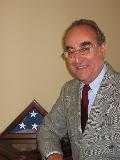
|
| Peter Aloise |
The Right Angle Club recently heard from one of its own members about the complex issues involved in the topic of globalization. Peter Alois defined globalization as the development of an increasingly integrated world marketplace, although enthusiasts call it Free Trade, and opponents say it interferes with Fair Trade. Although there can be local exceptions, globalization generally leads to lower prices, so consumers are pleased, producers are worried. Since Free Trade can be defined as international commerce without government interference, globalization can also be defined as a general reduction of government influence in trade. But whether you love it or fear it, globalization is a reality; it is here.
Hindrances to trade can take many forms, including subsidies to local merchants, who then can underprice foreign competitors. Carrying things to an extreme, the French fairly recently prohibited the use of American words. While the reasoning used to justify this intrusion into private life was the preservation of the beauty of native French phonetics, this unfortunate government adventure calls attention to the possibility that one of the main functions of local languages is to make it difficult for foreigners to understand what is being said. The Anglo-Saxon response tends to note the large expense of teaching foreign languages in our schools, so why doesn't the rest of the world just stop the nonsense and start speaking English?

|
| Dubai Waterfront |
There does seem to be something about this issue related to fair play, a thoroughly Anglo-Saxon concept. When corruption of trade practices around the world is ranked, it is notable that both New Zealand and Canada, which are ranked at the top, are former British colonies. Somalia, certainly one of least British of countries, is ranked at the bottom. No doubt the French would be offended by this observation. It is also irksome to Fair Trade advocates (ie Globalization opponents) that national prosperity is also fairly parallel to Free Trade policies, absence of corruption, and so on. It was George Washington (probably ghost-written by James Madison) who most famously framed the American Doctrine: Honesty is the best policy.
Some of the members of the Right Angle Club, an outspoken lot, took up the other side of the proposition. Underpricing by foreigners leads to competitive advantage for them and loss of jobs for Americans. This dislocation is the unfortunate side of creative destruction, and a compassionate government should assist its wounded casualties. Whether it should go to the lengths of raising prices for other Americans by hobbling the foreigners, is a more open question. In the passion of argument, it was mentioned that this country was founded on such principles. Well, it would be hard to find anything written in the Constitution or spoken in its debates which supports that claim. But it must be admitted that the new nation wasted little time in creating new tariff protection for struggling new American manufactures, but took an awfully long time to get rid of what protective tariffs it already had. The confusions of the newly developing Industrial Revolution were perhaps not the best time to develop enduring principles of trade fairs, and thus we should not necessarily be held to them forever. But there is certainly room for the argument that a nation may need a certain set of policies when it is new and struggling, that are not necessarily appropriate when it becomes rich enough to claim to dominate world trade.
Private Sector Disciplines Congress
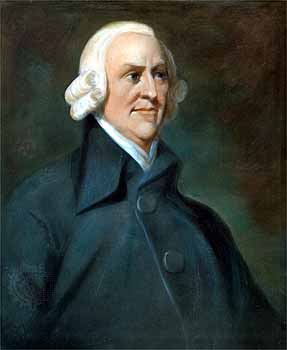
|
| Adam Smith |
Two centuries after our present narrative, when President William Clinton once proposed a financial adventure, Robert Rubin replied, "The bond market won't let you do it." In this way, the former Wall Street investment banker educated his politician boss that the most powerful wealth of any nation is hidden, locked up in homes, businesses, infrastructure, population education, and other long-term assets. Such wealth normally transforms into cash only when the Treasury borrows it (usually by selling government bonds) because by Constitutional intention the alternative of raising taxes is essentially confiscatory. By contrast, the use of bonds requires only an agreement on price. Bond use is thereby related to supply and demand, with the government generally selling bonds and the public generally buying them. The government sells as many bonds as it pleases, but the price received will immediately sink if too many bonds are for sale. Viewed another way, bond prices announce the market's daily assessment of probable government solvency because the isolated bond market is solely interested in the probability of being repaid.
 In modern wars, the longest purse must generally determine the event. 
|
| George Washington, May, 1780 |
In 1779 there was no bond market, so Robert Morris set about creating one. Acting then as only a private citizen, but faced with his government being run into the ground, Robert Morris proposed the creation of a "bank", the Bank of Pennsylvania, created, owned and managed by private citizens. The first bank in the nation didn't take retail deposits and was unlike banks we have today in other ways. Modeled more like a bond fund of the Twenty-first century, the Bank of Pennsylvania got its funds through fairly large subscriptions from wealthy people. Robert Morris himself was probably the heaviest subscriber. A bond market was thus created, with subscriptions flooding in when the public was pleased with its government, and flooding out when the public didn't like the looks of things. Naturally, there was a profit: the bonds the bank sold to subscribers were priced higher than the bonds the bank bought from the government. In this way, the public was assured the process of setting prices remained in neutral hands. The government could print bonds freely, but the Bank of Pennsylvania couldn't buy them unless somebody gave it some money, and that wouldn't happen unless prices rose to the "market clearing level," of agreement between potential buyers and sellers. The nature of the deal didn't change much when later banks got their funds from deposits, and one later enduring feature also didn't change: Governments hate banks because banks are in a position to frustrate governments intent on spending what they please.
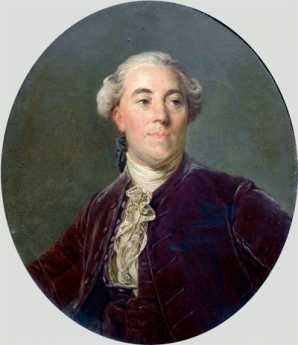
|
| Jacques Necker |
Quite soon, the public could be visualized as composed of debtors and creditors; the two main political parties have mostly had a matching composition. Progressive politicians, like Albert Gallatin, Thomas Jefferson, Andrew Jackson, Robert LaFollette, William Jennings Bryan, Woodrow Wilson, and Barack Obama have demonized banks, often threatening to nationalize or eliminate what is basically a neutral bookkeeping function. Adam Smith had written The Wealth of Nations three years earlier; Morris gave copies to friends and had obviously read the book, as had Alexander Hamilton. Morris also entered into exciting correspondence with Jacques Necker, the Swiss/ French banking genius, but Necker soon died, leaving it uncertain how much influence he had on America. This group of people gave us a system in which the public markets set the price of a currency, not the other way around. In the 1779 case, galloping inflation quickly came under control and goods soon reappeared in the markets, although the continuing war exerted relentless pressure until 1783 for the government to do more borrowing.
|
||
In another irony, during the year he was totally out of office (conservatives were restored to power in the October 1780 election), Morris enjoyed his greatest personal prosperity and exerted almost total personal control of the currency; it was fruitless to accuse him of using government office for private gain when he held no office. During this brief interval, Morris also created the first American corporate conglomerate, the series of partnerships called Peter Whitesides and Company. At least as profitable were his personal relationships with the French Ambassador Luzerne and the emissary from Havana, Juan de Miralles, who introduced him to large pools of investment capital from abroad. His American businesses became almost too numerous to count, again highlighting his prodigious ability to work. Meanwhile, his social life was as active as anyone's, extending his hospitality and affability world-wide, and anticipating a return to public life. All of this took about a year.
During this period, his sole civic activity was the Bank of Pennsylvania. As a bank, it had a relatively short life. As a subtlety of government, it would be hard to find its equal in any other empowerment of the people. Many centuries of history had formerly taught the lesson that public office was the way to get seriously rich. Morris flaunted a brand new American banner: public corruption was a waste of time, like any other zero-sum game.
Morris Upended by a Nobody
THE Revolutionary War ended militarily with the Battle of Yorktown in 1781, and diplomatically with the Treaty of Paris in 1783. The careers of Washington and Franklin appeared to be complete, while the economic and financial career of Robert Morris seemed likely to stretch for decades into the future. But as matters actually turned out for these three fast friends, it was Washington who was propelled into a new political career, Franklin soon died, and Morris got himself into a career-ending mess. The financial complexity and economic power of the United States did grow massively in the next several decades, but unfortunately, Robert Morris was soon unable to exert any leadership. At the end of Washington's eight years as President, the power of the Federalists, and particularly the three men most central to it, was coming to a close. John Adams had a tempestuous single term, and then Federalism was all over.
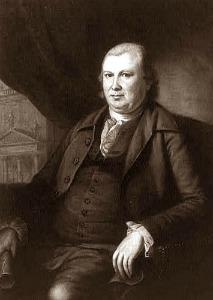
|
| Robert Morris |
The end of the Eighteenth century marked the end of The Enlightenment and the beginning of the Industrial Revolution, accompanied by many national revolutions, not just the American one. This was a major turning point for world history. The momentum of these upheavals still continues, but it is clear that the Industrial Revolution of which the Morris banking revolution was an essential part swept the world far faster than the social and political revolution, in which he also played a pivotal role. In the banking and industrial revolution, it is universally agreed that Morris was almost always right. In the social and political world, it is conversely agreed he was quite wrong. Essentially, Morris assumed that a small minority, an aristocracy of some sort, would rule any country. Within weeks of the ratification of the new Constitution, or even somewhat in anticipation of it, America made it clear that replacing an aristocracy of inheritance with an aristocracy of merit would not satisfy the need. Morris, born illegitimate and soon an orphan, was obviously in favor of promotion based on merit. John Adams defined leadership even more narrowly; he said a gentleman was a man who went to college, and he probably meant Harvard. Nobody extended the leadership class to include Indians and slaves, but the backwoodsmen of Appalachia made it clear that power and leadership at least included them. Thomas Jefferson was the visible leader of this expansion of the franchise, but changed his mind several times. James Madison switched sides; Thomas Paine switched in the opposite direction. The leaders of Shay's Rebellion and the Whiskey Rebellion lacked coherence and consistency on this point; instead of agitating for a refined goal, they mostly seemed to be running around looking for a leader. William Findlay, on the other hand, knew what he wanted. The issue might be defined as follows: it was obvious that hereditary aristocracy was too small and too inflexible to suffice, but it was also obvious that every man a king was too inclusive. An expanded leadership class was needed, but its boundaries were indistinct and contentious. But to return to Findlay, who at least had a clear idea of what he wanted.
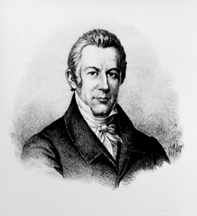
|
| William Findlay |
William Findlay was a member representing Western Pennsylvania in the State Legislature, in 1785. It would be difficult to claim any notable accomplishment in his life; he was largely uneducated. The new leadership class must, therefore, include both the uneducated and the mediocre. The Legislature at that time met in the State House, Independence Hall, in Philadelphia, where no doubt the unconventional dress and manners of backwoodsmen did not pass without audible comment. Findlay made his own political goals quite explicit; he was for paper money to facilitate land speculation which could make him rich. Wealth was a goal, but it did not confer distinction. The rights of the Indians, the rights of the descendants of William Penn, the rights of the educated class and the preservation of property were all just obstacles in the way of an ambitious man who had carefully studied the rules. Everybody's vote was as good as everybody else's, and if you shrewdly controlled a majority of them, you could do as you please. If this meat-ax approach had any rational justification, it lay in the essential selfishness of every single member of the Legislature, working as hard as he could to further his own interest. If someone controlled a majority of such votes, then the majority of the public were declaring in favor of the outcome. Those who believed in good government and the public interest were saps; the refinements of education mostly just created hypocritical liars. There was a strain of Calvinism in all this and a very large dose of Adam Smith's hidden hand of the marketplace. If you were rich, it was proof that God loved you, if you were poor, God must not think much of you, or He wouldn't have made you poor. Findlay had the votes and meant to become rich; if his opponents didn't have the votes, they could expect soon to be poor. In this particular case, the vote coming up was a motion to renew the charter of the Bank of North America. Findlay wanted it to die.
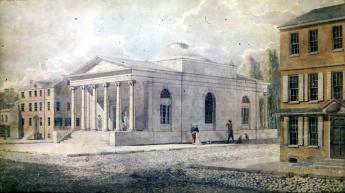
|
| America's first bank, the Bank of Pennsylvania |
It came down to a personal debate between Findlay, and Robert Morris. Morris had conceived and created America's first bank, the Bank of Pennsylvania. Today it would be called a bond fund, with Morris and a few of his friends put up their own money to act as leverage for loans to run the Revolutionary War. After a short time, it occurred to Morris that the money in a bank could be expanded by accepting interest-bearing public deposits and making small loans at a higher interest rate, which is the way most banks operate today. Accordingly, a new bank called the Bank of North America was chartered to serve this function, which greatly assisted in winning the Revolutionary War. There was no banking act or general law of corporations; each corporation had its individual charter, specifying what it could do and how it would be supervised. When the charter came up for renewal, Findlay saw his chance to kill it. Morris, of course, defended it, pointing out the great value to the nation of promoting commerce and maintaining a stable currency. The reply was immediate. Morris had his own money invested in the bank and only wanted to profit from it at the public expense. His protests about the good of commerce and the public interest in stable money were simply cloaking for this rich man's greed to make more money. Findlay made no secret of his interest in reverting to state-authorized paper money, which could then be used by the well-connected to buy vast lands in Ohio for speculation. There were enough other legislators present who could see welcome advantages, and by a small majority the charter was defeated.
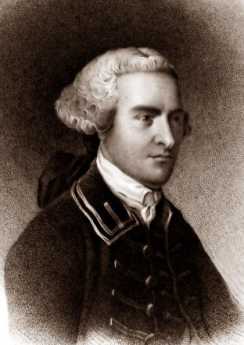
|
| John Hancock |
At this point, Morris made a staggering mistake. After all, he was a simple man of no great background, largely uneducated but fortified by his ascent in society from waterfront apprentice to the highest of social positions, a friend of George Washington and Benjamin Franklin, acclaimed as a financial genius, the man who saved the Revolution, very likely the richest man in America. For many years, he had harbored not the slightest doubt of his personal genius, his absolute honesty, and total dedication to the welfare of his country. To have this reputation and accomplishment sneered at by a worthless backwoodsman, a man who would stoop to using the votes of other backwoodsmen to accomplish self-enrichment, was intolerable. Morris announced and actually did sell out his entire business interest as a merchant, at a moment when he fully understood the new nation was about to enjoy an unprecedented post-war boom. So much for his self-interest. It helps to understand that John Hancock and Henry Laurens had done the same thing in Boston and Charleston, against what we now see as a strange aristocratic tradition of prejudice against bankers and businessmen. In even the few shreds of aristocracy now surviving in Britain and Europe, the tradition persists that a true aristocrat is so independently wealthy that no self-interested temptations can attract him away from purest attention to the public good. The original source of this wealth was the King, who conferred high favor on those who served the nation well. A curious exception was made for wealth in the form of land, the only dependable store of tangible wealth, and transactions in land. Wealth was something which came from God and the King in return for public service. Land ownership was its tangible storage and transfer medium. Otherwise, grubbing around with trade and manufacture was beneath the dignity of a true gentleman.
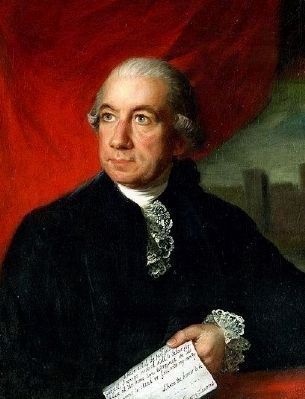
|
| Henry Laurens |
We now know what was coming. Wealth was soon to be the reward of skill and merit, recognized by fellow citizens in the marketplace, by consensus. Findlay and his friends wholly accepted this conclusion, unfortunately skipping the merit part of it for several decades. In their view, you were entitled to the money if you had the votes. As the nation gradually recognized that rewards must be durable, and once granted were yours to have and to hold, the new nation gradually came to see the need for durable ownership of property. Unless or until the owner places it out at risk in the marketplace, legislative votes may not affect its ownership. Our system ever since has rested on the three pillars of meritorious effort, assessment of value by the free market, and respect for pre-existing property. That's quite a change from the Divine Right of Kings, and therefore quite enough material to keep two political parties agitated for a couple of centuries. And quite enough change to bewilder even so brilliant a victim as Robert Morris.
Second Mortgages Want to Be First

|
| Chrysler Logo |
In a bankruptcy proceeding, there has long been a traditional conflict between the holders of first mortgages and the holders of second mortgages. It goes like this: since the holder of a first mortgage gets paid first, his incentive is to hurry up the process and get the money. The holder of a second mortgage, however, only gets paid what is left, so this party will normally wish to stall proceedings in the hope the market will improve and give the second mortgage a better payout. Normally, this sort of predictable dispute is covered by contracts, and in any event, most banks hold both kinds of mortgages and are neutral about what is just and fair. In the current banking crisis, however, the major banks have developed an incentive to favor the second mortgage, so they have a new view of what is just and fair. Four of the largest banks hold a total of $440 billion of second mortgages but have very few first mortgages because they were sold off in the securitization process. The banks mostly retained the function of servicing first mortgages, however, so they now have quite a conflict of interest.
Something like this seems to be going on with the resolution of the Detroit auto makers, with the difference that politicians tend to favor the interest of the auto workers in the bankruptcies because there are more voters to be influenced. And in the case of the auto companies, there are stockholders who will be wiped out by a bankruptcy unless the liquidation of the company assets produces enough cash to satisfy the creditors, secured and unsecured. After all, stockholders aren't creditors at all; they are owners of the company. No matter how things turn out, however, the secured creditors would normally have the first call on whatever is salvaged. So, it's one class of secured creditor against another, or else it is the secured creditors against the "stakeholders", employees or any other unsecured creditor. If the government intervenes, there is the additional issue of the Fifth Amendment of the Constitution, which prohibits the government from the "taking" of private property without just compensation. Representative Conyers of Michigan, whose political allegiance is not in doubt, has introduced legislation to prohibit lawsuits in these matters. So now, the prospect grows of a constitutional clash between Congress and the Supreme Court, over the Constitutionality of such a law which denies due process. So that gets us into the fourteenth amendment, too. If we look beyond the technicalities, the looming clash is between President Obama and Chief Justice Roberts. One of them wants to take money from secured creditors and make it available to someone with more political clout; and the other surely wants to preserve the sanctity of contracts, the rights of property holders, due process, and the right of the Supreme Court to declare contrary laws to be unconstitutional.
Unless someone backs off, the situation would seem to be as monumental as Franklin Roosevelt's Supreme Court-packing proposal. Because -- there is every reason to anticipate a 5-4 vote by the Supreme Court, a 5-3 vote if Justice Souter is not replaced by that time, and strenuous efforts to alter the balance.
Regulation Precision: Not Entirely a Good Idea
Obamacare's Constitutionality
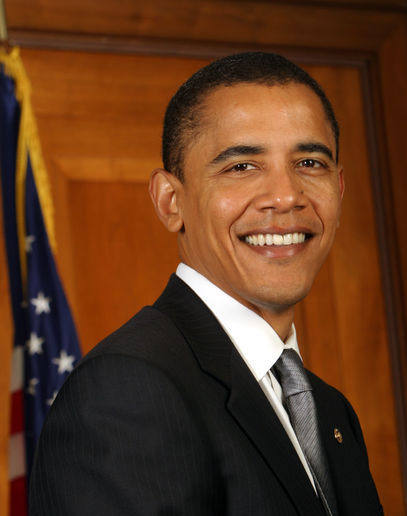
|
| President Barack Obama |
Any idea of a smoothly orchestrated introduction of the new law was jarringly interrupted by the U. S. Supreme Court, which granted a hearing to a complaint by 26 State Attorney Generals, that the ACA Act was unconstitutional. It was big news that the whole Affordable Care Act might be set aside without selling a single policy of insurance. The timing (before the Act had actually been implemented) served to guarantee that the constitutional issue, and only that issue, would be discussed at this Supreme Court hearing. By implication, there might be more than one episode to these hearings.
While many could have declaimed for an hour without notes, about difficult issues perceived in the Obama health plan, questioning its constitutionality had scarcely entered most minds. Then of a sudden, near the end of March 2012, a case testing the constitutionality of mandatory health insurance was granted certiorari and very promptly argued for three full days before the U.S. Supreme Court. Twenty-six state attorneys general brought that case, so it was not trivial. In jest, one Justice quipped he would rather throw out the whole case than being forced to spend a year just reading 2500 pages of it. But Justices are practiced in the art of quickly getting to the heart of a matter; it soon boiled down to one issue: was it constitutional for Congress to force the whole nation to purchase health insurance? Is there no limit in the Constitution about what the federal government can force all citizens to do, even though the federal government itself is severely limited in scope? Even though the Tenth Amendment states that anything not specifically granted to the federal becomes the province of the states? Would a people who fought an armed revolution for eight years over a 2-cent tax on tea, now consent to a much larger requirement which it was not constitutionally authorized to impose? Most people finally wrapped their heads around some formulation of this non-medical concept to a point where they vaguely understood what the Judges were arguing about. This was beginning to look like a topic where We The People made a covenant with our elected leaders, and reserve the sole right to change it.
 The powers not delegated to the United States by the Constitution, nor prohibited by it to the States, are reserved to the States respectively, or to the people. 
|
| Tenth Amendment |
The Constitution describes a Federal system in which, a few enumerated powers are granted to the national government but every other power is reserved to the state legislatures. The Constitution had to be ratified by the states to go into effect, and the states had such strong reservations about the surrender of more than a handful of powers that they would not ratify the document unless the concept of enumeration was restated by the Tenth Amendment. If states could not be persuaded of the need for a particular power to be national, they might refuse to ratify a document which enabled permanent quarrels about the issue. That wariness explains why The Bill of Rights goes to the extra trouble of declaring certain powers are forbidden to any level of government.
Separation of powers further explains why Mr. Romney's mandatory health insurance plan might be legal for the Massachusetts legislature but prohibited to Congress. After Chief Justice Roberts got through with it, whether that truly remains the case will now depend on whether it is described as a tax, a penalty, a cost, or whatever, and only if the U.S. Supreme Court later agrees that was a proper definition. Because -- to be considered a tax it must be too small to be considered coercion. The law itself apparently does not underline this distinction in a way the Justices felt they could approve. Indeed, while Mr. Obama in his speeches firmly declared it was not a tax, later White House "officials" declared it might be. There was agreement the Federal government could tax, but no acknowledgment that taxes might have any purpose other than revenue.
Under circumstances widely visible on television, however, it was clear that the House of Representatives had been offered no opportunity to comment on this and many other points in this legislation. To a layman, that fact itself seems as clear a violation of constitutional intent as almost any other issue, since the Constitution indicates no idea was ever contemplated that any President might construct laws, nor like the courts, interpret their meaning. The first three Presidents repeatedly raised the question of whether they had the authority to do certain things we now take for granted. And Thomas Jefferson was similarly boxed in by a clever Chief Justice, who said, in effect, Agree to This Decision, or be Prepared to Get a Worse One. The Constitution says it is the function of the Executive branch to enforce the law, "faithfully". Presumably, all of the thousands of regulations issued by the Executive Branch under this law must meet the same test.
Given that the Justices now hold it constitutional for the federal Congress to mandate universal health insurance, based on some authority within taxation, the immediate next issue is paying for it. Millions of citizens, usually young and healthy but sometimes for religious reasons, do not want to buy health insurance and would be forced to do so by this law because the only available alternative is to pay a revenue tax. The purpose of including them is to overcharge people who will predictably under-use community-rated insurance, and thus enable the surplus to reduce costs for those who do want to buy health insurance. (Here, the Court had the pleasure of reducing an unusually opaque law to an unusually succinct summary.) To avoid the charge of a "taking", the Administration must either surrender on the universal mandatory point or else surrender the level premiums of community rating. The lawyers for the complaining attorneys general laid great stress on this particular issue in their arguments, and it occasioned much of the discussion from the bench. However, until the law is in action there is as yet no cause for damages.
Here it will depend on whether you call it a permissible activity for Massachusetts or for the Federal government. The Constitutional point seems to be that it is a legitimate Federal power to tax for the "general welfare", so it now becomes essential to know if the taxes for noncompliance in Obamacare are really a penalty. The Justices seemed to be questioning whether the whole scheme would collapse with the forced subsidy eliminated, and because of that be deemed to have been a "general welfare purpose" adequate to meet the constitutional requirement of a permissible enumerated purpose. Lawyers can generally find such a defined purpose in the words of the Constitution, even if they have to dip into the penumbras and emanations of the words. So the question might just devolve into whether a majority of the Justices wish to declare the penumbra to be within the enumerated powers of Congress. To all of this, the lawyers for the attorneys' general reply that such an enumerated power is impossible because there is no limit to what could be done by this method. Congress would then be allowed to mandate that everyone eat broccoli for dinner, or buy a General Motors car in order to pay for the deficits of rescuing that company from bankruptcy. Almost anything could be mandated by establishing a penalty called a tax; including a mandate that everyone buys a product in order to pay for the deficits of mandating it, illustrates there exists at least one circularity of enumerating something like a power of Congress. According to this reasoning, mandated health insurance cannot, therefore, be an enumerated power of Congress, either now or at any time in the future. The sort of speculative law outlined in this paragraph is exactly the sort of thing the Supreme Court dislikes and shows the utility of denying access to the courts to anyone who cannot claim "standing", defined as a claim of actual injury from a law.
The Justices undoubtedly had to weigh the fact that the American public has a strong distaste for this sort of convoluted reasoning, which sounds like a convention of Jesuit priests having fun. On many other occasions, however, the public has accepted the judgment of people it hired to understand this sort of thing; that's called respect for the law. Eighty years ago in the Roosevelt court-packing case, there was the same sort of collision between the Court and the President, and the Court knuckled under even though the public supported the Court. In both cases, the Court seemed to be yielding to the President, with the unspoken compromise that the President would not pursue his earlier course with quite so much vigor. Since the really central 1937 question of overturning the Interstate Commerce clause ("Commerce among the several states") was left unaddressed, the velvet glove might yet contain an iron fist.
Restoring the Gold Standard by Levering Judges' Salaries

|
| Gold Inflation |
Generally speaking, creditors hate inflation and favor a gold standard because they fear debtors -- who outnumber them at the polls -- will dishonor their debts by inflating the currency. And debtors generally are rather serene about the risk of inflation, for the same reason in reverse. Since governments are almost invariably debtors, the combination of government and debtors on the side of promoting inflation represents a dishearteningly strong force for creditors to combat. It is plain for everyone to see that inflation has been steadily moving ahead. But it is something for everyone to ponder that leaving creditors with only one recourse is almost certain to translate that particular recourse into action. Creditors will raise interest rates in anticipation of inflation, and the economy will suffer for debtors as well as everyone else.
So, hard-money advocates like the Paul family of Texas have been rather nonplussed to discover that Federal Judges have handed them in 2010 a very effective weapon they had long overlooked. It should be no surprise that it came from that direction; judges are long accustomed to looking backward to the historical origins of the laws they are charged with interpreting. In this case, the defining statement is found in the Declaration of Independence.
Parenthetically, conservatives are reluctant to include the Declaration in an explanation of the Constitution, since it is plainly true the Constitution was written to correct the weaknesses of the Articles of Confederation, which was much more closely defined by the circumstances of the Declaration. The almost immediate response to any such logical jump over the Constitution, particularly those of Abraham Lincoln, is to thump the maxim that The Declaration of Independence is not Law. And it isn't; it's just in this case it makes a concise statement of a major reason we were offended by the King of England:
"He has made judges dependent on his will alone, for the tenure of their offices, and the amount and payment of their salaries."
Note the operative phrase dependent on his will alone , which takes us back to the Magna Carta, where even the King must obey the Law. If judges are the umpires, it isn't in accord with deeply felt British culture that the King could force the umpires to favor his wishes in their official decisions, by threatening punishment on their persons. No, thousand times no. Anyone can see that.
Furthermore, the determination of underlying intent is so difficult to prove, and so easy to deny, that it is scarcely mentioned in the debate. If two motives seem possible, the other party will assert the high-sounding one and deny the ulterior one. The offended party will instinctively suspect the reverse and will brush aside any protestations to the contrary. Since that is bound to happen, please skip the preliminaries and get on with the evidence. So it is in this case; any reduction in the judge's salary is treated as an attempt to influence official decisions. The Administration maintains a reduction of Federal judge salaries is necessary for budgetary reasons. Please don't insult my intelligence that way. You aren't allowed to reduce the salaries of judges for any reason.
From this rather easy position to take, it is only a short step to say that refusing to raise judge salaries during inflation is a reduction of salary in real terms, after adjusting for inflation. Your paper money is phony; I want to preserve my purchasing power. Your refusal to adjust for inflation is even more clearly a salary reduction since the link to gold was severed during the Nixon and Johnson administrations. We are not on anything remotely resembling a gold standard; we are on a monetary standard which is by law adjusted to inflation, and just about nothing else. Hubert Humphrey may have thought he was creating a loophole by mandating concern with unemployment, but just try to convince the judges of the Supreme Court of that one.
And so, it seems predictable that Judge Beer of the Eastern District of Louisiana, and his fellow judges, will achieve an effective gold standard for Federal Judges if they have the fortitude to tough it out. After that, it gets harder, Congressman Paul. You have to push the concept that what is fair for Federal Judges is fair for everyone else. You should assume that judges will vote in their own favor, and therefore reasonably assume that the public will vote in its own favor, too. If that be treason, said Patrick Henry, make the most of it.
xxxOur Unwritten Constitution
New blog 2012-05-21 16:13:41 contentsVoid for Vagueness

|
| Question Mark |
BECAUSE otherwise, everyone would plead ignorance, ignorance of the law has been dismissed as a defense for thousands of years. What, then, is the situation when the statute itself is accused? Here, a group of citizens accuses the government of enacting vague laws, conceivably with the malicious intent to give government officers a free hand. Only the U.S. Supreme Court may decide Constitutional issues, and nine Justices are certainly inadequate to cope with a huge vagueness project. The Court must at least define a method for coping with imprecision. What is to be done with this?
 Is it really any longer true that ignorance of the law is no excuse? 
|
This novel proposition is a recent one, mostly because the volume of laws has steadily grown since 1787, when we began the Republic without any statutes at all, to the present gargantuan size of the Federal, State and Local Codes requiring hundreds of feet of shelf space in a library. No human brain can contain all that information at once, not even to mention the interpretive Regulations which grow by hundreds of thousands of pages each year. The limits of practical governance by traditional methods have passed the point where ignorance of the law is a theory, it is an absolute certainty for every citizen in most situations. Is it thus really any longer true that ignorance of the law is no excuse? Perhaps modern computer search capability has advanced to the point where it can conquer this problem for judges in an appellate situation, but woe unto the financier or automobile driver who professes ignorance of the state of judicial dispute resting in the system. Sometime relatively soon, some legal genius must figure out a sensible, workable, way to reconsider the rule that ignorance is no excuse when plainly anything other than ignorance is a laughable pretense.
But this muddle is only a background for a new twist to the same issue. The synthetic process has now created a growing apprehension that duly elected officials have passed laws which are deliberately vague, forcing the country to surrender decisions to a tyrannical process. Leave motive and intent out of the discussion; a tyrant is being created whether a tyrant seeks the crown or not. Just review recent history.

|
| Lame Duck |
We now grow accustomed to seeing proposed legislation thousands of pages long, appearing on the desks of elected congressmen who have been given a day or two, or sometimes less than a day, to approve them. The authors of this proposed legislation are often quite unidentifiable, and might sometimes not even be officials of the government. For a while, there was some talk of appointing "Czars" for certain areas of activity, but this has apparently provoked too much Congressional resistance. These multi-thousand page bills appear out of nowhere in particular, nominally authorized by the Speaker, the Committee Chairman, or some other official of Congress whose freedom of action is actually tightly controlled by arcane but irresistible partisan politics. A legislative body pretending that every member is the equal of every other, is in fact ruled with an iron hand.
Elected representatives of the people, charged with writing our laws, who even happen to belong to the majority political party, are powerless to refuse to adopt the legislation they have not read, and the minority is even more dismissively ignored. Confounding even careful reading of small sections of these bills, they are vague, potentially intentionally so. There is scant opportunity afforded legislators to question the authors of these legislative piles, not even the opportunity to have them reveal their names. Subscribe to this mystery package, or suffer unspoken political punishments. We are told assurances are privately given there will be an opportunity to correct errors when regulations are written by the Executive branch. The Legislative branch effectively removed itself from the expenditure of a trillion dollars for a medical reform that no one could lucidly explain, affecting a sixth of the gross domestic product. Within a month, this "reform" was followed by a highly similar process directed at the financial system of the nation, which likewise bears almost no resemblance to the problems it claims prompted the action. Small wonder the countryside is dotted with Tea Parties, and small wonder they are confused by what they want. Chief among their objectives is a demand to return to an understandable system, controlled by the legislative branch, not the executive one.
Whether the applicable term is "vagueness" or whether an underlying motive is to be alleged by calling it "deliberate ambiguity", a former Justice of the U.S. Supreme Court once supplied an adequate slogan for these legal barricades. Justice George Sutherland, who sat on the court from 1922 to 1938, constructed the legal standard for the unconstitutionality of criminal cases called Void for Vagueness . It seems a sufficiently evocative slogan for fall election campaigns, and it might even serve as a legal claim in a Supreme Court test of the matter.
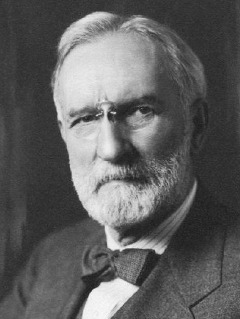
|
Meanwhile, we have wars to fight, and the deepest recession in eighty years, plus whatever events national or international news may force us to contend with. A monumental Supreme Court test seems an almost welcome alternative. To make it possible, the Court will have to resolve the difficulty that this issue is neither criminal nor civil in the usual sense, and there is no third alternative. Furthermore, there is the picky-picky quibble that the doctrine of "void for vagueness" has only previously been used in criminal cases. We will have to endure the Republican resurrection of George Sutherland as a former American Bar President, whose elevation to the Supreme Court was so anticipated by everyone that he was unanimously confirmed, without hearings, the day he was nominated.
The fact is, popping the bubble of "void for vagueness" in this particular political tap dance is only an early warning that the nation is already inundated in a sea of bewildering rules. To the point where ignorance of the law must be acknowledged to be the common fate of all citizens. The law must soon address the matter, uncharacteristically remembering that the first step in resolving any true crisis is to decide which rule must be broken.
After the Convention:Hamilton and Madison
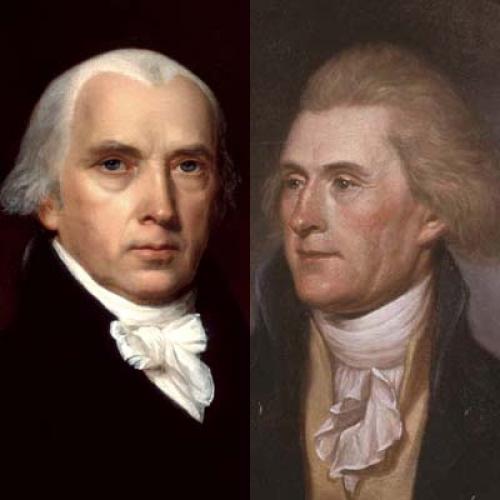
|
| Signers |
The Federalist Papers were written by three founding fathers after the Constitution had been completed and adopted by the Convention. Detecting hesitation in New York, the aim was for publication in New York newspapers to persuade that wavering State to ratify the proposal. It is natural that The Federalist was composed of arguments most persuasive to New York, putting less stress on matters of concern to other national regions. This narrow focus may explain the close cooperation of Hamilton and Madison, who must surely have suppressed some latent concerns in order to present a unified position. In view of how much emphasis the courts have placed on the original intent of almost every word in the Constitution, it seems a pity that no one has attempted to reconcile the words of the principal explanatory documents with the hostile disagreements of their two main authors, almost as soon as the Constitution came into action. Perhaps the psychological hangups would be more convincingly dissected by playwrights and poets, than historians.
John Jay wrote five of the essays, mostly concerned with foreign relations; his presence here highlights the historical likelihood that Jay might have been the one who first voiced the idea of replacing the Articles of Confederation. At least, he seems to have been first to carry the idea of a general convention for that purpose to George Washington (in a March 1786 letter). The remaining essays of The Federalist were written under the pen name of Publius by Alexander Hamilton and James Madison, both of whom had a strong enough hand in crafting the Constitution, but who quickly became absolutely dominant figures in the two central political factions after the Constitution was actually in operation. And their eagerness to be central is itself telling. They were passing from a stage of pleasing George Washington with his favorite project, into furthering a platform for launching their own emerging agendas. It is true that Madison's Federalist essays were mainly concerned with relations between the several states, while Hamilton concentrated on the powers of the various branches of government. As matters evolved, Hamilton soon displayed a sharper focus on building a powerful nation; Madison scarcely looked beyond the strategies of internal political power except to see clearly that Hamilton was going to get in the way. These two areas are not necessarily incompatible. But it is nevertheless striking that two such relentlessly driven men could work together to achieve the same set of rules for the game they were about to play so unflinchingly. Thomas Jefferson had been in France during the Constitutional Convention. It was he who was most dissatisfied with the resulting concentration of power in the Executive Branch, but Madison eagerly became the most active agent for forming the anti-Federalist party, with all its hints that Washington was too senile to know the difference between a President and a King. Washington abruptly cut him off and never spoke to Madison after the drift of his opinions became undeniable. Today, it is common to slur politicians for pandering to lobbyists and special interests, but that presents only weak competition with the personal forces shaping leadership opinion, chief among them being loyalty to, and perceived disloyalty from, close political associates.
As a curious thing, both Hamilton and Madison were short and elfin, and both relied for influence heavily on their ability to influence the mind of
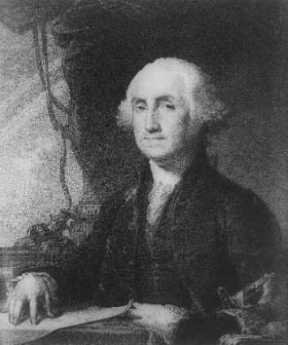
|
| George Washington |
George Washington, who projected the power and manner of a large formidable athlete. Washington had no strong inclination to run things and, once elected, no particular agenda except to preside in a way that would meet general approval. He had mainly wanted a new form of government so the country could defend itself, and pay its soldiers. Madison was a scholar of political history and a master manipulator of legislative bodies, while Hamilton's role was to supply practically unlimited administrative energy. Washington was good at positioning himself as the decider of everything important; somehow, everybody needed his approval. On the other hand, both Madison and Hamilton were immensely ambitious and needed Washington's approval. This system of puppy dogs bringing the Master a bone worked for a long while, and then it stopped working. Washington was very displeased.
The difference between these two short men immediately appeared in the way they chose a role to play. Madison the Virginian chose to dominate the legislative process as the leader of the largest state delegation within the

|
| Alexander Hamilton |
House of Representatives, in those days the dominant legislative chamber. Hamilton sought to be Secretary of the Treasury, in those days the largest and most powerful department of the executive branch. It's now a familiar pattern: one wanted to form policy through dominating the board of directors, while the manager wanted to run things his way, even if that led in a different direction. Both of them knew they were setting the pattern for the future, and each of them pushed his ideas as far as they would go. Essentially, this could go on until Washington roused himself.
After a short time in office, Hamilton wrote four historic papers about two general goals: a modern financial system, and a modern economy. For the first goal, he wanted a dominant national currency with mint to produce it and a bank to control it. Second, he also wanted the country to switch from an agricultural base to a manufacturing one. You could even say he really wanted only one thing, a national switch to manufacturing, with the necessary financial apparatus to support it. Essentially, Hamilton was the first influential American to recognize the power of the Industrial Revolution which began in England at much the same time as the American Revolution. Hamilton was swept up in dreams of its potential for America, and while puzzled -- as we continue to be today -- about some of its sources, became convinced that the secrets lay in the economic theories of
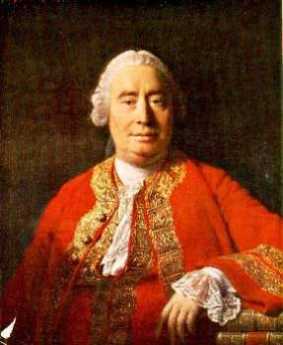
|
| David Hume |
David Hume and Adam Smith in Scotland, and of Necker in France. Impetuous Hamilton saw that Time was the essence of opportunity; we quickly needed to gather the war debts of the various states into the national treasury, we quickly needed a bank to hold them, and a mint to make more money quickly as liquidity was needed. It seemed childishly obvious to an impatient Hamilton that manufacturing had a larger profit margin than agricultural products did; it was obvious, absolutely obvious, that this approach would inspire huge wealth for the new nation.

|
| Industrial Revolution |
Well, to someone like Madison who was incredulous that any gentleman would think manufacturing was a respectable way of life, what was truly obvious was that Hamilton must be grabbing control of the nation's money to put it all under his own control. He must want to be king; we had just got rid of kings. Furthermore, Hamilton was all over the place with schemes and deals; you can't trust such a person. In fact, it takes a schemer to know another schemer at sight, even when the nature of the scheme was unclear. Madison and Jefferson couldn't understand how anyone could look at the vast expanses of the open continent stretching to the Pacific without recognizing in this must lie the nation's true destiny. Why would you fiddle with pots and pans when with the same effort and daring you could rule a plantation and watch it bloom? If anyone had used modern business jargon like "Win, win strategy", the Virginian might well have snorted back, "When you say that to me, friend, smile."
Alexander Hamilton, Celebrity
 He had the kind of taudry private life and flashy public behavior that Philadelphia will only tolerate in aristocrats, sometimes. 
|
It comes as a surprise that most of the serious, important things Alexander Hamilton did for his country were done in Philadelphia, while he lived at 79 South 3rd Street. That surprises because much of his more colorful behavior took place elsewhere. He was born on a fly-speck Caribbean island, the "bastard brat of a Scots peddler" in John Adams' exaggerated view, was orphaned and had to support himself after age 13. The orphan then fought his way to Kings College (now Columbia University) in New York in spite of hoping to go to Princeton, and has been celebrated ever since by Columbia University as a son of New York. He did found the Bank of New York, and he did marry the daughter of a New York patroon, and he was the head of the New York political delegation. As you can see in the statuary collection at the Constitution Center, he was a funny-looking little elf with a long pointed nose, frequently calling attention to himself with hyperkinetic behavior. Even as the legitimate father of eight children, Hamilton had some overly close associations with other men's wives, probably including his wife's sister. Nevertheless, he earned the affection of the stiff and solemn General Washington, probably through a gift of gab and skill getting things done, while outwardly acting as court jester in a difficult and dangerous guerilla war. There is a famous story of his shaking loose from the headquarters staff and fighting in the line at Yorktown, where he insolently stood on the parapet before the British enemy troops, performing the manual of arms. Instead of using him for target practice, the British troops applauded his audacity. Harboring no such illusions, Aaron Burr later killed him in a duel as everyone knows; it was not his first such challenge.

|
| Alexander Hamilton |
Columbia University President Nicholas Murray Butler told other stories of celeb behavior to reinforce Hamilton's New York flavor. But in the clutch, General Washington learned he could always trust Hamilton, who wrote many of his letters for him and acted as his reliable spymaster. When the first President faced signing or not signing the fateful bill to create the National Bank, a perplexed Washington had to choose between: the violent opposition of Thomas Jefferson and James Madison, or the bewildering complexity of Alexander Hamilton's reasoning in arcane economics. On the one hand, there was the simple principle that owing money was seemingly always evil; on the other was the undeniable truth that for every debit created, you create a balancing credit somewhere. Washington ultimately chose to go with Hamilton, whose reasonings he likely didn't understand very well. If you doubt the difficulty, try reading Hamilton's Report on the Bank, written to persuade the nation and its first President of the soundness of his ideas. And then consider the violence of even present-day arguments about such "supply side" economics.
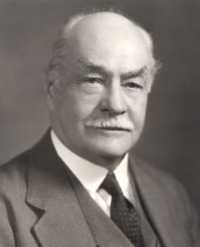
|
| Nicholas Murray Butler |
All of these momentous events happened in Philadelphia at places now easily visited in a morning's stroll. But Hamilton's image as a Philadelphian, doing great things in and for Philadelphia, was forever tarnished at one single dinner he hosted. Jefferson and Madison, his political opponents but his guests, were persuaded to provide Virginia's votes for the federal takeover of state Revolutionary War debts, in return for offering New York's votes for moving the nation's capital to the banks of the Potomac. True, Pennsylvania allowed itself to be pacified with having the capital remain here for ten years while the southern swamps were being drained. But it was Hamilton who cooked up this deal and sold it to the other vote swappers. Philadelphia felt it was entitled to the capital without needing to ask, felt that Hamilton was deliberately under-counting Pennsylvania's war debts, and this city has never appreciated the insolent idea that its entitlements were forever in the hands of wine-swilling hustlers. As the economic consequences of this backroom deal became evident during the 19th Century, it was increasingly unlikely that Philadelphia would lionize the memory of the man responsible for it. Let New York claim him, if it likes that sort of thing. When Albert Gallatin, who was more or less a Pennsylvania home town boy, attacked Hamilton as a person, as a banker, and as a Federalist -- he had a fairly easy time persuading Philadelphians that this needle-nosed philanderer was an embarrassment best forgotten.
REFERENCES
| Alexander Hamilton Ron Chernow ISBN:978-0-14-303475-9 | Amazon |
Funding the National Debt
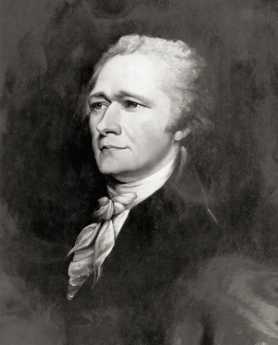
|
| Alexander Hamilton |
Although Alexander Hamilton's arresting slogan that "A national debt is a national treasure" has diverted attention to the underlying idea toward him, Robert Morris had introduced and argued for the same insight in the preamble to his 1785 "Statement of Accounts". The key sentence was, "The payment of debts may indeed be expensive, but it is infinitely more expensive to withhold payment." This fatherly-sounding advice was surely a distillation of a long life as a merchant, and the gist of it may have been passed down to him as an apprentice. Failure to pay your debts promptly and cheerfully results in the world assigning a higher interest rate to your future credit; it is not long before compounded interest begins to drag you down. It doesn't exactly say that, but that's what it means.
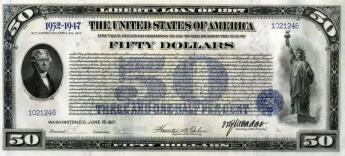
|
| Liberty Bond |
Another way of looking at this folk wisdom is that it leads to a simplified method of organizing the finances of an organization. Because higher rates of interest are demanded of long-term borrowing than short-term, it becomes efficient to segregate them. That is, to establish a cash account for every-day transactions, and a separate bond account for a long term, or capital, debt. As bills arrive, they need only be verified for accuracy and sent for payment from either a cash account or a capital account. The original responsibility for agreeing to such debts lies with top management, not the treasurer. The job of the treasurer's office is to pay legitimate bills as quickly and cheerfully as possible, ignoring any imprudence of earlier agreeing to them; rewards will come from lower interest charges and improved credit rating. An unexpected benefit of thus organizing institutions and governments is to make the accounting profession possible. Accountants perform the same function in every business, whether the business is selling battleships or parsnips. The accounting profession made itself computer-ready, two hundred years before the computer was invented.
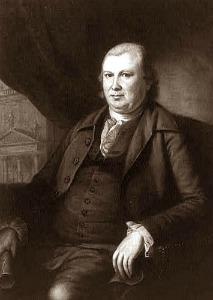
|
| Robert Morris |
In the same document, the retiring national Financier was advising the wisdom of "funding" the war debts, which were largely owed to France, with whom relations were rapidly souring. Lump them all together into a fund, issue bonds and sell them as representations of the nation's capital at the time of issue. Disregard what the money was used for, by either the debtor or the creditor. In spite of appearances, money sequestered in a fund for later payment belongs to the creditor the moment it is promised, not the moment it is transferred. Morris and Hamilton discovered that the fund itself had the property of a bank, in creating money. As long as the creditor did not cash your bonds, he could use them as money, in effect doubling the amount of money you yourself can spend. It was this discovery which so exhilarated Alexander Hamilton, causing him to over-praise the methodology to an already suspicious Congress. Tending toward the teachings of Shakespeare's Polonius, Hamilton's excitable manner caused them to remember, neither a borrower nor a lender is. But Congress was eventually persuaded. The federal government lumped the states' debts together in an "assumption of debts" , consolidated all these various little debts into a single "funded debt", and made the deal work with changing the "residency" of the nation's capital from Philadelphia to the banks of the Potomac. It was called the Great Compromise of 1790.
Morris well understood that a funded system requires some final payor of last resort. Such a payor need set aside only a small portion of the debt for dire contingencies, but his name gets first attention on the list presented to prospective creditors. In 1778 Morris had offered his own personal wealth as that last resort, which the public at the time trusted far more than the Treasury of the United States. Over the next twenty years, he came to realize that the last resort of established nations, no matter what the paper said, was the aggregate underlying wealth of the whole nation. With a vast continent stretching to the West, and countless immigrants clamoring to join from the East, the wealth supporting the debt of the United States in 1790 seemed endless. After two hundred years we have finally begun to accumulate a national debt which equals our Gross Domestic Product, and have only begun to pull back as we observe what happens to other nations who got to that point sooner. Let's hope devising an automatic check and balance does not require a second Robert Morris. Men like him can be hard to find, so limit your debts -- or your nation's debts -- to sixty percent of your assets. Financial geniuses are invited to devise a better debt limit, if they can.
Our Federal Reserve : Biddle's Bank (2)
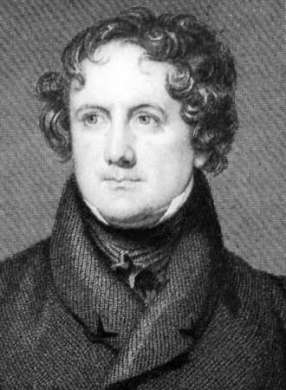
|
| Nicholas Biddle |
In 1823, the Biddles were prosperous, having made money in real estate (a Biddle ancestor had been a member of the Proprietors), and influential, having been Free Quakers who sided with the Revolution. So, Nicholas Biddle became the president of the Second Bank at 4th and Chestnut. Like all banks, he was given the ability to create money by taking deposits and loaning them out. Since in this process, two people (the depositor and the borrower) think they have the same money, there is effectively twice as much of it -- unless both actually demand it at the same time. If a bank has Federal revenues on deposit, as Biddle did, it is fairly easy for a politically active banker to predict whether that large depositor is likely to withdraw it. Political deposits seemingly make a bank stronger and safer, unless the banker has a fight with a politician. That's banking, but Biddle also became a central banker.
Biddle had ideas, derived in part from Alexander Hamilton. In those days, banks issued their own paper currency, or bank notes, representing the gold in their vaults or the real estate on which they held mortgages. There was a risk in one bank accepting bank notes from another bank that might go bust before you changed their notes into gold. The further away the issuing bank was, the riskier it was to rely on it. So, it was important to be a friendly sort of banker, who knew a lot of other bankers who would accept your money or who were known to be trustworthy.
Nicholas Biddle himself was well known to be pretty rich, and utterly trustworthy. He had a good instinct for how much to charge or discount the banknotes from other banks, or even other states. It was quite profitable to do this, but it became even more profitable when people began to use Biddle's own bank notes because they were safe. By setting a fair standard, he could control the exchange rate -- and hence the lending limits -- of banks that dealt with him. Sometimes a distant bank would get into cash shortages, and Biddle would help them out; if the other bank had a bad reputation, he might not.
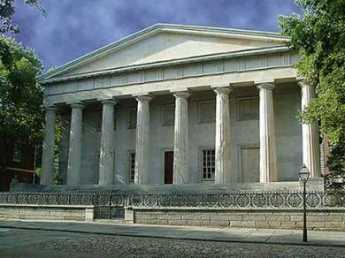
|
| Bank of the United States |
In this way, the Second Bank was a reserve bank for other banks, with its banknote currency coming close to being the currency for the whole country. Soon, within a few blocks of Biddle's Bank, there were dozens of other banks, making up the financial capital of the country. Although it was a little obscure, and even Biddle may not have completely realized what he was doing, in effect his system automatically adjust the amount of currency in circulation to the size of the economy. If the correspondent banks prospered, they issued more currency, and if there was a recession, the country had deflation. The volatility of this system was related to the volatility of a pioneer economy, so Biddle made lots of enemies whenever he guessed about the direction of the economy. It wasn't a perfect system, but at least he kept politicians from inflating the currency to get re-elected, and hence annoyed politicians by constraining them. During the great western land rush of those days, all banks were under pressure to issue more loans than was wise, and politicians were under pressure to make them do so.
The worst enemy Biddle made was Martin Van Buren of New York. Van Buren was a consummate politician, one of whose many goals was to move the financial capital of the country from Chestnut Street--to Wall Street.
REFERENCES
| America's First Great Depression: Economic Crisis and Political Disorder after the Panic of 1837 Alasdarir Roberts ISBN-13: 978-0801450334 | Amazon |
Vote Counting, Past and Future
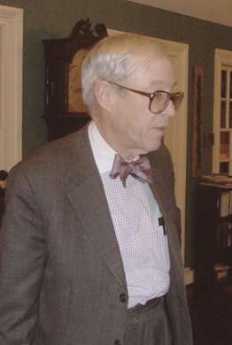
|
| Greg Harvey |
The Right Angle Club was recently fascinated to hear Greg Harvey, a Montgomery McCracken expert on election laws, discuss the snarled Florida situation in the 2000 Presidential race, and the prospects for similar problems in upcoming elections. With the aid of retrospect, candidate Al Gore deserves much of the blame for his own loss, and the U.S. Supreme Court does seem to have terminated the uproar without affecting the final result.
A consortium of major newspapers funded an extensive investigation of the Florida election and were forced to agree that George W. Bush would probably have won that election no matter what. The central issue in these contests is the 35-day time limit to contesting elections. It is true that right or wrong, the country needs to settle its elections promptly and get on with its business. Furthermore, if a national election is so close that it takes months to decide the winner, there can't be a great deal of difference between the candidates, so who cares.
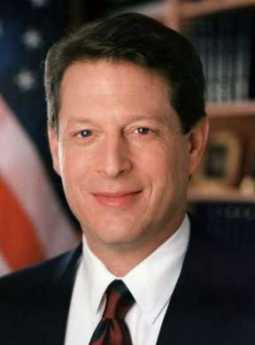
|
| Al Gore |
Looking back at the 2000 election with the leisure of time and appreciable resources, it is possible to see that Al Gore might have won that election if he had made several lucky choices in contesting its result. But it seems highly unlikely that anyone in his position would have been able to identify the winning combination of choices -- within the 35 day time allowed for pursuing them. He had to guess that ballots with two candidates marked ("over balloting") would pick up more Gore votes than ballots without an indicated choice ("under balloting"); he guessed wrong. He had to decide whether challenging late ballots from absentee military was worth the unpopularity of pursuing such a technicality to the disadvantage of soldiers serving overseas. His ticket-mate Joe Lieberman urged him to avoid that touchy issue which did prove to cost him some votes he needed. The decision was one to be proud of but is the main reason why his party faithfuls later turned rather viciously against Lieberman. A second wrong guess was to fail to go after the software mixup on invalidating the ballots of convicted felons. He might have picked up a couple of thousand votes, but only if willing to have the world learn that convicted felons are overwhelmingly pro-Democratic voters. The one decision he made that makes him look rather sappy to professional pols was to challenge ballots in the districts where he was already very popular.
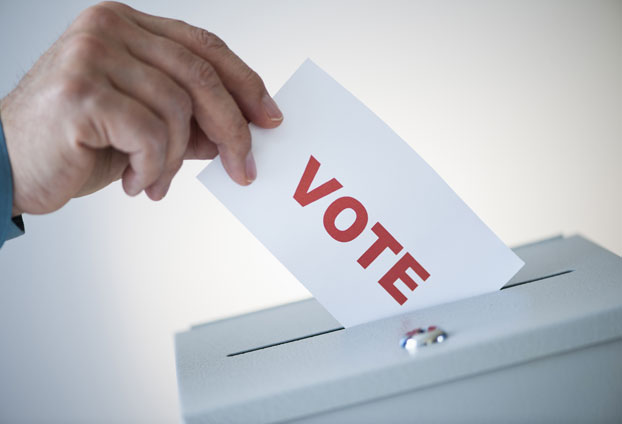
|
| Vote |
Vote counters and poll watchers tend to be strong political partisans, usually drawn from the local district. When votes are ambiguous, these people lean in the direction of their party. Therefore, most party insiders would know immediately; if you challenge districts, challenge the districts which favor your opponent. Choices like this do have to be made. The thirty-five-day rule makes a challenger run out of enough time to look elsewhere if early guesses prove wrong. So, although it is possible in retrospect to construct for Gore a winning strategy for selective challenges, the newspaper consortium and the Supreme Court which pondered the choices before him rightly concluded he was destined to lose.

|
| HAVA |
Some of these lessons are enduring ones, but future elections face unexplored difficulties. A new election law (the Help America Vote Act, or "HAVA") sought to reform the election system by prohibiting the use of punch card ballots, requiring states to use auditable vote records and provisional ballots in doubtful cases, stricter voter identification methods, and statewide voter registration databases. In response to these record requirements, many states opted for complicated data in code, sequence-scrambled to prevent individual identification. In the event of a challenge, however, deciphering these records will be time-consuming, and the potential is created for the candidate who is initially ahead to stretch out the process until the challenge effort collapses at the 35-day time limit.
Several states, including Ohio, are thought to have the potential for very close 2008 results. In that particular state there are some complicated rules about voting in the "wrong" district, that is, to be registered in one district, but attempting to vote in another. It would not seem difficult to do a little of this on purpose, either as a voter, or an election registrar. It seems unlikely that very much challenge among the three possible culprits could be accomplished within thirty-five days of a contested election. So the challenger in Ohio would be faced with the same sort of impossible snap decisions that faced poor old Al Gore, surrounded by excited partisans shouting at the top of their voices.
So perhaps Greg Harvey's law school classmate Appellate Judge Richard Posner has a sustainable position on this. It was his judgment that the 2000 election was essentially a tie. Letting the Supreme Court decide it wasn't the worst possible choice.
www.Philadelphia-Reflections.com/blog/1515.htm
Anatomy of an Urban Political Machine

|
| One Big Family |
The Franklin Inn Club meets every Monday morning to discuss the news, and recently it discussed the upcoming local political campaign. The discussion went on for fifteen minutes before a newcomer asked if we were talking about the primary or the general election. The question was met with broad smiles all around because of course, we were talking about the primary. Voter registration is 6:1 in favor of the Democrats in Philadelphia, so the general election is just a required formality. The election, that is, consists only of the Democrat primary; election of the Democrat nominee in the general election is a foregone conclusion. Someone idly remarked on the number of politicians who are blood relatives of other politicians, someone else said that was true of union officers, too. So, skipping from the inside baseball of the election, we took a little time to discuss the anatomy of an urban political machine.
The first step in consolidating control of a city by a political machine is to eliminate the issue of the general election by making the other party's chances seem hopeless. That converts an election which typically turns out 40% of the voters into an exclusively primary election, turning out 20% of the voters, or even less in an off-year. In some "safe" districts a winner needs far less than 10% of the eligible voters to win.
The second step is to run as a prominent member of a local ethnic or religious group, preferably the largest of such groups within the district. If possible, an election is almost assured by being the sole candidate associated with the largest ethnic group. Here's where family connections work for you. If your father held the same seat, or some other family member had been prominent in the district, it helps assure everybody that you are really an ethnic member and not just someone whose name sounds as though it would be. Your relative will know who is important in locally local politics, the members of large families or people are known to be the "go-to guy".
Assembling all that, the final step is to get everyone else who is a member of the ethnic group to drop out of the primary, and to encourage other ethnic groups to field as many candidates as possible, splitting up their vote. Getting other members of your religious group to drop out, consists of having your relative approach them and tell them to wait their turn. The implicit promise underneath that advice is probably next to worthless, unless it is specific and witnessed, and the other fellow's ability to deliver it is credible. If all else fails, the resistant opponent is muscled in some way, verbally at first, and then increasingly threatening. The consequence of this ethnic/religious influence is more involvement in government by clergy than is healthy for either one of them. Now, that's about all there is to achieving permanent incumbency, but the minority party should be mentioned, as well as the flow of money.
It quite often happens that the minority party in the big city, hopeless in its own election chances, finds itself with a Governor and/or Legislature of their party. The patronage of state jobs becomes available to the foot soldiers who have no chance of local election. Much of the wrangling within state legislatures revolves around whether appointive patronage jobs should be lodged in state agencies, or local ones; at the moment, the Parking Authority and the Port Authorities figure prominently as jobs for which a local Republican could aspire. The coin of this trade is maintaining influence in the state nominating process and paying off with increased voter turn-out in elections which have no local effect but may be important at the state or national level. Since party dominance at state and national levels changes frequently, the local machine finds it useful to continue this system. Where they have nothing to lose in local elections, they may even encourage it.
Money is the mother's milk of politics. Except for safe districts no one can get elected without it. And various degrees of corruption provide money to be "spread around" the clubhouse, sometimes to induce people to drop out of primary races, sometimes to console "sacrifice" candidates who run hopeless campaigns just to make the party look good, and sometimes just to enrich the undeserving. The politically connected parts of the legal profession participate a good deal in the flow of funds, sometimes in order to get government legal work, sometimes to obtain judgeships, sometimes to launder the money for clients. One particularly lurid story circulates that professional sports teams are expected to make seven-figure contributions in return for lavish new stadium construction, from which they, in turn, are able to generate various sorts of compensating revenue.
But, as the old story goes, if you eat lunch with a tiger, the tiger eats last.
American Succession
It may seem a startling focus for a famous war hero, but one of the most important precedents George Washington wanted to establish as America's first president, was that he was determined not to die while in office. His original intention was to serve only one four-year term as president, only accepting a second term with considerable concern that it would increase his chances of dying in office. His reasons are perhaps not totally clear since he repeatedly stated his concern that he had promised the American public that he would retire from public office when he resigned his commission as General and was determined to seem a man of his word. While this sounds a little off-key to modern ears, it must be remembered his resignation as General had caused an international stir, even prompting King George III to exclaim that this must be the greatest man who ever lived. Washington may have sincerely thought he was following the pattern of Cincinnatus, the Roman citizen soldier who declined further public life in order to return to his farm. But in retrospect we can see that for a thousand years before Washington's military resignation it was essentially unheard of for a leader with major power to be removed by any means except death. Regardless of where he might have got the idea, Washington was consciously trying to establish a tradition of public service by those who were natural leaders, dutifully responding to the need of the nation, and stepping down when the service was completed. It was an important day for him and for the nation, when he stood before John Adams in 1796, honorably and humbly turning over supreme power to a successor who had been chosen, by others, in a lawful way. Peaceful succession is part of the original intent of the founder of the Constitution, if anything is.
Some have written that Washington was not our first president, but our eleventh if one counts those elected the presiding officers of the Continental Congress, under the Articles of Confederation. But none of them could be said to be the head of state, and absolutely none of them could be confident the public would re-elect them indefinitely. Washington was not so much aiming for a two-term limit as he was setting a pattern for returning the choice to the people after a stated term, and deploring anyone who sought unlimited power for its own sake. The office should seek the man, not the man seek the office, and even if the public got carried away by adulation, the man should in good time step aside. For over a century the two-term tradition was later unchallenged, until Franklin Roosevelt succumbed to exactly the temptations that Washington foresaw. We have seldom amended the Constitution, but after Roosevelt, it was soon amended to emphasize what so many had previously considered it unnecessary to state.
The idea of a fixed term of office has had an unexpected calming effect on partisanship in America. In parliamentary systems like the British, a prime minister answers weekly questions from his opposition, with a full realization that he can be dismissed from office at any moment he angers a majority into a vote of no-confidence. Under the American Constitution, a recent election mandate eats into the stated time in office, making it progressively less rewarding to evict the officer for the residual time before another election does it automatically. America does indeed have an impeachment process, but in fact, it has been rarely employed. In America, if someone is elected for a specific term, it is almost certain he will serve out the full term. There are times when partisanship seems unlimited, but in fact, we probably have less of it than if we encouraged partisan outcry to go on to evicting an incumbent from office.
Washington was not so successful in promoting another component of his ideal statesman. In his view, a district would naturally select the most prominent citizen available to represent the district, since that person would do it more ably than anyone else and give up the office when duty was completed; that was behind the stated ideal of republican government. Madison was for a time persuaded that such choices should be filtered a second time, with the House of Representatives electing Senators from its midst, but that failed to win approval. In the Eighteenth century, the concept of professional bureaucrats and professional politicians had not yet taken hold. In its place was the fear of "ambitious" leaders, who would be held in check by a tradition of underpaying elected representatives, or even of gentlemen of means who would refuse to accept any pay for doing their duty. It proved unanswerable when ambitious men assailed this republican concept by protesting the establishment of aristocracies, oligarchies, and failure of the upper class to understand the needs and anxieties of the common man. This viewpoint eventually replaced the "natural" local leaders with those who had experienced life in a log cabin or endured the purifying experiences of other hardships. The original idea of the founders was to elect leaders who could not be bought; ambitious men could be bought. When political parties made their appearance, a new thought appeared; perhaps ambitious men could be controlled.
As the practical realities of politics in action began to surface, members of elected bodies with varying degrees of ambition and altruism sought refuge from pressures being applied to them. After all, one of the undeniable implications of the Constitution was that every single member of an elected body had just as much power and rights as every other one. Out of this tension emerged the seniority system, another unwritten rule with the power of reality forging it into an implicit rule. In time, everyone would achieve seniority at the same point in his career, and hence the procedural powers necessary to running the place could be assigned with lessened fear of improper pressure. Newcomers regularly complain about the seniority system but eventually yield to it as the least bad accommodation to necessity. But even minor imperfections will be exploited if a system endures long enough. In this case, political parties in the home states are persuaded that the fruits of seniority might be disproportionately available to them if they elect young candidates and keep them in office indefinitely. Eventually, such stalwarts can rise to positions that allow them to reward the home district. This has the interesting consequence of creating political families, whose senior representative acquires the power to select his son or grandson to take his place in the rising chain of command. That's not as bad as an inherited aristocracy, perhaps, but it has several similarities.
Chief Justice John Marshall Enters (Kettledrums and Crashing Cymbals)
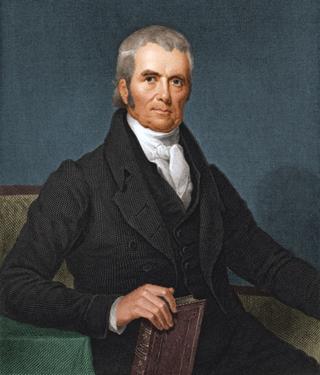
|
| Chief Justice John Marshall |
Chief Justice John Marshall first took his seat at the opening of the new term, in Washington the new capital, on Wednesday, February 4, 1801. It was also at the end of Philadelphia's twenty-five-year reign as the center of the country, and twelve-year Federalist domination of national power, except for the Supreme Court. The Presidency, both houses of Congress, and the federal bureaucracy were in the hands of Jefferson's party. Only the dwindling life tenure of federal judges permitted some power to remain in the hands of Federalists for several more decades. John Adams the defeated Federalist President realized this very well and hastened to fill any remaining vacancies before he left the office. The Jeffersonian Republicans understood what was happening, resented it, and referred bitterly to the "Midnight Judges". We discuss the Marshall Court in some detail because it leads to the Andrew Jackson escapade in high finance, which ultimately merges with evolving financial history back in Philadelphia at the crashing termination of "Biddle's Bank".
Marshall was himself a Midnight Judge in the sense he was the retiring (Federalist) Secretary of State, immediately appointed by Adams to the duties of Chief Justice. He was himself the office of the Adams Administration who neglected to deliver the certificate of appointment of Justice of the Peace to Marbury, who promptly sued James Madison the incoming Secretary of State, to give him his signed and ratified certificate. Jefferson the incoming President of the United States, ordered Madison not to give it to Marbury. The behavior of all these high officials was unbecomingly petty since it was within the power of several of them to end the tangle in simple ways. To make matters still more infuriating, Jefferson delivered a beautiful, heart-warming First Inaugural Speech, full of forgiveness and invitation to compromise ("We are all Republicans, we are all Federalists"), which his own intransigence before, during and afterward transformed into a Federalist by-word for hypocrisy exceeding anything in Shakespeare. It's hard to say whether it makes these performances more or less bearable to learn that Marshall and Jefferson were first cousins. In any event, Marbury v. Madison was the first example of a Supreme Court ruling that a law was unconstitutional. The legal point on which this titanic Constitutional point rested, however, seems mostly a minor procedural error, leaving poor Marbury's problem as a footnote, Marshall's negligence uncriticised, Jefferson's interference unimpeached, and the whole nation's opinion of its governance sadly disappointed. On vivid display was the dominance of petty private grievances of our most venerated Founding Fathers, in an era when a public policy seemed most in need of getting the highest priority. In 1800, the confluence of names alone suggested crisis: Aaron Burr, Robespierre, Bonaparte, Hamilton. It was certainly a dramatic way for John Marshall to make an entrance on the public stage, but compared with the tie-vote election of 1800, and the Trial of Aaron Burr the Vice President for treason, it scarcely seemed worth public notice.
Within legal circles, professional achievements of Judges are ranked by a different standard which seems obscure to both the public and historians. Oliver Ellsworth, Marshall's immediate predecessor, nowadays seems most highly esteemed in the legal profession for revising the nature of judicial opinions. Prior to Ellsworth, the seven justices gave their opinions individually and serially. Ellsworth simplified this to majority and minority opinions of the entire court, with individual concurring opinions if insisted upon. The Chief Justice selects who will write the majority opinion, and generally writes it himself if he is in that majority. Effectively this makes the Chief Justice the voice of the court in important cases. Ellsworth retired for reasons of health before he got many advantages from this change, so the full force of Chief Justice power began to appear with the voice of Marshall. John Marshall then added his own twist, which was the obiter dictum .
Judges often make little speeches from the bench, which sometimes are on the public record. If they are directly related to the decision or opinion, they have some force as precedents to lower or later courts. In other circumstances obiter dicta have little consequence, but Marshall recognized there was a very big difference when an obiter issued from the pen of the Chief Justice of the United States, speaking for a majority of the Supreme Court. All Judges of every Federal Court and the Judges of State Courts in many situations are then on notice that the obiter is the opinion of that court to which all appeals could ultimately be made. It would be a brave judge who ignored this warning, and only a foolish lawyer would bring a case which flouted it. John Marshall had found a way to legislate what was effectively the Law of the Land, one without the possibility of a veto while he was still on the bench. He had not been made an Emperor, because the power of his dicta would depend on how combative he and fellow justices chose to be about it. But, looking ahead, Andrew Jackson would have been showing a profound lack of subtlety about the way things really are, had he issued his famous jibe that "John Marshall has made his decision. Now let him enforce it." Jackson's most distinguished biographer Robert Remini maintains Jackson never said it, and prudently so.
Marshall was also prudent when he had to be, and acting as a Moses was careful to confine his Commandments to his mandate, which was the American law. Some of his obiter dicta might have been ignored as coming from the most powerful Federalist of his day, a former chief of the Virginia Federalist party, but with the passage of time several of these opinions have passed from statements of early Nineteenth century judicial policy into becoming the accepted American view of things. It is reasonably safe to say the following three dicta anticipate the coming of the Civil War, define its issues, and survived that war, reconfirmed:
The Federalist View of the Constitution. The Constitution is an ordinance of the people of the United States, and not a compact of States.
Enumerated powers. While the government which the Constitution established is one of the enumerated powers, as to those powers it is a sovereign government, both in its choice of the means by which to exercise its powers and in its supremacy over all colliding and antagonistic powers.
States Rights. The National Government and its instrumentalities are present within the States, not by the tolerance of the States, but by the supreme authority of the people of the United States.
 Article 1, section 10, clause 1 No State shall enter into any Treaty, Alliance, or Confederation; grant Letters of Marque and Reprisal; coin Money; emit Bills of Credit; make any Thing but gold and silver Coin a Tender in Payment of Debts; pass any Bill of Attainder, ex post facto Law, or Law impairing the Obligation of Contracts, or grant any Title of Nobility. 
|
| The Contract Clause |
The Sanctity of Contracts. In a famous dialogue between James Madison and Roger Sherman of Connecticut, Madison identified the erratic and high-handed behavior of state legislatures as one of the main reasons to convene the Constitutional Convention. He was describing a long list of behaviors which included reclaiming sales which had been regarded as permanent, reversing statutes, interfering with executions or other verdicts of courts, intervening in private controversies, calling for new hearings, introducing new rules of evidence after a trial had begun, and so forth. To a considerable degree, these abuses grew out of a collision between the undeniable right of a later legislature to change the rules which had been established by an earlier legislature, balanced against the disruptive effect of making any changes in rules, no matter how beneficial. For their part, the courts were in need of restraining themselves with doctrines like stare decisis , while reserving the right to make desirable changes in the law after serious consideration. They were also in need of establishing best practices and insisting they be followed, eventually evolving into the concept of due process , which eventually became Constitutional doctrine by the XIV Amendment. The legislative equivalent of these judicial principles was seen in laws passed after the crime had been committed ( ex post facto ), special legislation for one case an exception to general rules, and a wide variety of other unfair practices which had grown up. Accordingly, Article 1, section 10, clause 1 of the Constitution was written but often evaded in practice by sly legal tricks with Latin names. Examples of the broad principles might be stated in the constitution, but it required an experienced Judge to recognize the many evasions for what they were and organize a set of rules to implement the Constitutional principle. Marshall appointed himself in that role and systematically integrated his judicial counter-attack into a coherent code of moral conduct, bit by bit in obiter dicta.
We should let the French traveling correspondent, Alexis de Tocqueville, pass the final judgment on Marshall's effort:
"Scarcely any political question arises in the United States which is not resolved sooner, or later, into a judicial question. Hence all parties are obliged to borrow in their daily controversies the ideas, and even the language peculiar to judicial proceedings. . . The language of the law thus becomes, in some measure, a vulgar tongue; the spirit of law, which is produced in the schools and courts of justice, gradually penetrates beyond their walls into the bosom of society, where it descends to the lowest classes, so that at last the whole people contract the habits and the tastes of the judicial magistrate."
Sanctity of Contracts
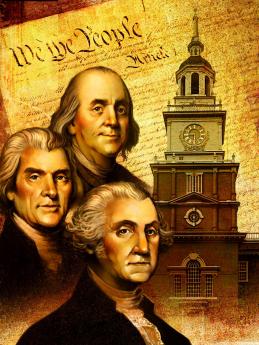
|
| Constitution |
THERE is little doubt many state legislatures behaved in a capricious and high-handed way in the twenty years prior to the 1787 Constitution. Outrage at this behavior was one of the important stimulants to writing the Constitution, as well as putting public pressure on state legislatures to ratify it in 1788. Section 10 of Article 1 is devoted to limitations on state behavior deemed to be generally offensive or otherwise contrary to the national interest. Among the comparatively short list of absolute prohibitions is found "No state shall......, pass any law.....impairing the obligation of contracts, or grant any title of nobility." This section condemns certain behavior as indefensible but does not specify the Federal government to be similarly limited, along with the states. However, the government which was established as one of the limited federal powers. Unless a power was specifically granted to the Federal government, the Tenth Amendment announces it belongs to the states, or, as the Ninth Amendment would have it, to the people. There seemed no need to limit the scope of a power which could not exist. The Tenth and final Amendment in the Bill of Rights ended the 1791 Constitution with the words:
X. The powers not delegated to the United States by the Constitution, nor prohibited by it to the states, are reserved to the States respectively, or to the people.
A modern capsulation might be: the Federal Government is no more empowered to impair the sanctity of contracts than it is to grant titles of nobility.
The Framers of the Constitution were inexperienced in the habits of a republic, or they might have anticipated the general tendency of those who are empowered to enforce the law, to flout it in their own behavior. Around the smallest courthouse in the nation, one need not be surprised to find the Sheriff or other local worthies, parking their cars in illegal spots without fear of punishment. It is not just state legislatures who are tempted to disobey the laws they pass, but a general tendency of all authority to do so. It requires a local citizenry with a very short fuse, displaying instant hostility to the first sign of this sort of swaggering, to keep their local newspapers from filling up with scandal stories in the weeks before an election. Many of these stories are politically motivated, of course, but it must be admitted that in a naughty world, they are necessary.
 No State shall enter into any Treaty, Alliance, or Confederation; grant Letters of Marque and Reprisal; coin Money; emit Bills of Credit; make any Thing but gold and silver Coin a Tender in Payment of Debts; pass any Bill of Attainder, ex post facto Law, or Law impairing the Obligation of Contracts, or grant any Title of Nobility. No State shall, without the Consent of the Congress, lay any Imposts or Duties on Imports or Exports, except what may be absolutely necessary for executing it's inspection Laws: and the net Produce of all Duties and Imposts, laid by any State on Imports or Exports, shall be for the Use of the Treasury of the United States; and all such Laws shall be subject to the Revision and Control of the Congress. No State shall, without the Consent of Congress, lay any duty of Tonnage, keep Troops, or Ships of War in time of Peace, enter into any Agreement or Compact with another State, or with a foreign Power, or engage in War, unless actually invaded, or in such imminent Danger as will not admit of delay. 
|
| Article One, Section 10 |
A 21st Century illustration is found in a letter sent to current beneficiaries of Social Security, reducing their monthly check by twenty or more percent in some cases, and in other cases just a few dollars. The notice says that this deduction is based on IRS reports of the individual's income, using material supplied by the Internal Revenue Service, thereby triggering an additional side question about the right of the government to use supposedly private information to impair the obligation of the Social Security contract. Setting the privacy issue aside, what is illustrated is an even more discouraging violation of the expectations for fair dealing. This is a privacy right which might have been enforced by an excruciating repetition of the time-consuming requirement of manual specification. Now that computers are more common, what formerly needed no specification, now perhaps begins to need it, since endless repetition is now so tediously conventional.
Governments casually violate the sanctity of contracts when it is self-serving to do so, and presumably, it can be shown that they neglect to violate, or even punish those who violate, whenever such violations are to the advantage of anyone else. It has been said that this matter has been adjudicated in favor of the government in the past, thus creating a precedent, stare decisis, so to speak. Whatever the logic of such precedents, growing Constitutional literacy among the public is going to demand that the matter be re-argued. That is to say, it is comparatively easy to imagine growing knowledge about the Constitution among the citizens, while it will never be easy to expect the public to puzzle through the steps in a judicial chain which explicates how the reverse is now a superior view. Therefore, the demand for re-argument should be a growing one.
National Debt, Presidential Hat Tricks, Shale Gas and Argentina
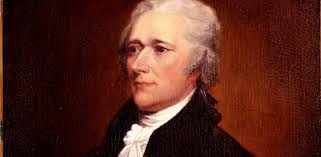
|
| Alexander Hamilton |
This-here speaker at the Right Angle Club began a discussion of the "Fiscal Cliff" razzle-dazzle of 2012, by changing his mind about the causes of the financial crash of 2007. Originally, it seemed as though globalizing 500 million Chinese out of poverty had destabilized the exuberant American mortgage market by flooding it with cheap credit. Supplanting that idea, or perhaps only supplementing it, must now be added the overextension of national debt itself to a point of bringing national borrowing to a halt.
Early in the Eighteenth century the Dutch and English had monetized national assets through a system of national borrowing formalized by Necker in Europe, and Robert Morris and Alexander Hamilton in America. Aside from a handful, no one could understand what they were talking about. Try reading that sentence a second time.
It amounted to guaranteeing all the private credit in the banking, investment, and commerce systems, with a national debt (in the form of Treasury bonds) which monetized all the assets of the whole nation. That action more or less doubled their value, just as any bank loan is seemingly owned by two people at the same time. Carried to an extreme, it might imply that America could turn Guam and Hawaii over to China if we defaulted on our debt. That was never actually intended to happen, and it never has, because all nations now fear the deflation which could result from triggering a massive exchange of national assets. The nebulous issue of "National Sovereignty" interferes with territorial transfers by any means other than war. If one nation defaults against a second nation which is afraid to go to war, it is just the stronger nation's hard luck about the debts it has chosen to support unless a transfer of assets actually happens. The Treaty of Versailles did transfer assets to the victors, and set off World War II, although it is considered bad manners to mention it. That's a simplified view of our international financial system, which admittedly skirts uncertainty about how much national debt is too much.
In fact, no one knows how much is too much until everyone runs for the exits. Now that politicians have control of computers and "big data", a modern description places the blame on Alan Greenspan the former Chairman of the Federal Reserve. For eighteen years Greenspan produced delicious world prosperity by steadily increasing American national debt faster than the American economy was growing. Sooner or later this approach was going to uncover how much was currently too much Federal debt. With silver and gold removed from the equation, one could see that default would certainly loom whenever the size of the debt became so large it could never be serviced by the Gross Domestic Product (GDP), and possibly sooner than that, if enough people could guess what was coming. This reality might be obscured temporarily by reducing interest rates, modifying international trade balances, and inflation. When the stars were in alignment however, the system just had to collapse and start over. Because it happened gradually, perhaps it would unwind gradually. In 2007 what happened was that everybody tried to get out the door at the same time. Essentially, our two political parties made opposite assessments: the party of Hamilton -- Republicans -- announced this system was doomed, while Democrats --the party of Andrew Jackson -- announced they could stave off disaster by making the rich Republicans pay for it. Both parties were partly right but essentially wrong, and the Democrats hired a better magician.
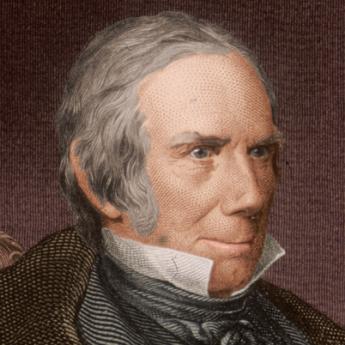
|
| Henry Clay |
It will take months or even years to be certain just what strategy was pursued. It would appear the Democrats chose to repeat the performance of the Obamacare legislation, eliminating national debate by eliminating the Congressional committee system of examining details in advance of a vote. Given one day to digest two thousand pages prepared by the Executive branch, no time was allowed for public opinion to form about Obamacare. In the case of the fiscal cliff episode, Congress was given less than one day to consider 150 pages allegedly prepared the day prior to the vote. Some will admire the skill of the executive branch in orchestrating this secret maneuver, but eventually, it must become apparent that policy decisions have been transferred from the legislative to the executive branch of government. Perhaps the Congressional Republicans are as stupid as the Democrats portray them to be, but it is also possible that a decision has been made to tempt the Democratic leaders into repeating this performance several times until eventually, the public is ready to consider impeachment for it. No matter what the strategy, we are now threatened with imagining some moment when gun barrels come level and live rounds slide home. We may pass up the opportunity to criticize Henry Clay for concentrating undue power in the Speaker of the House, or to uncover the way Harry Reid was persuaded to surrender Senate power to the Executive; both miscalculations are fast becoming irrelevant in the flurry of events. We came close to borrowing too much, exceeding our means to pay it back, that's all. A New York Times editorial economist feels we can "grow" our way out of this flirtation with danger, and we all certainly hope so.
Seemingly, there are only two ways to cope with over-borrowing, once we step over the invisible line. A nation may cheat its citizens with inflation, or it may cheat foreign citizens by defaulting on their currency. We are indebted to Rogoff and Reinhart for pointing out there is no difference between inflation and default except the identity of the cheated creditor; so most politicians prefer to cheat foreigners. Either way, cheating makes deadly enemies. Two centuries ago, Alexander Hamilton suggested a third way out of the problem, which we would today call "growth". But here, cheating is pretty easy: If the limit is some ratio of debt to GDP, find a way to increase nominal GDP.
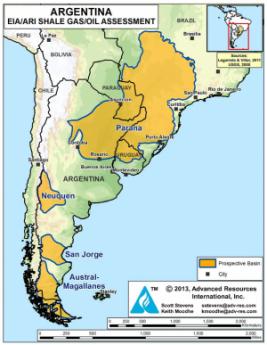
|
| Shale Gas and Argentina |
The most astonishing current example of the power of "growth", is shale gas. It may not be totally clean, but it is cleaner than oil or coal, and far cheaper. We suddenly have so much of it the price of energy is artificially lowered, and we talk, not merely of energy independence, but of restoring the balance of international payments by exporting it. Germany is constructing steel mills to utilize iron ingots made in America with gas instead of coal. Pittsburgh was once the center of steel production because that's where the coal was, the most expensive ingredient to transport. Suddenly it is now apparently cheaper to transport the energy source to wherever you find limestone and iron ore. JP Morgan got rich the other way, transporting limestone and iron ore to Pittsburgh, where the coal was. Russia now finds it has lost its leverage over Eastern Europe's energy supply, and the Arabs (?Iranians?) will no longer have a monopoly to provide the wealth supporting Middle-Eastern mischief. China may lose interest in Africa. And in America we may develop the courage to rid ourselves of the corn subsidies for gasoline; cutting the wind and sunlight fumbles also emerge as obvious ways to cut the deficit. That's what we mean by growth. It's so powerful it makes action by any American President seem trivial by comparison.
Presumably, President Obama does not welcome being upstaged by an economic force he doggedly resisted. He may seek ways to imply it was his idea all along. When that happens, rest assured that everyone else is then a fracker. But there is another alternative Presidential path, which in extreme form is emerging in Argentina without much media attention. In short, Argentina discovered signs of oil deposits but was unable to exploit them. A European oil company was enticed to develop the oil reserves at its own expense, and effectively did so in expectation of reward from the resulting oil sales. Suddenly, the Kirchner government expropriated the oil company, paying for it with Argentine bonds. The ink was scarcely dry before the Argentine government abruptly turned around and offered to buy back the bonds for 24 cents on the dollar. And unless someone is willing to send gunboats, the previous owners of the oil company are just out of luck. Appeals to the UN are futile; because on the one-nation, one-vote principle, there are more expropriator votes in the UN than potential victims. The only thing visible which could save capitalism in South America from the revolution in shale gas competition. Presumably, Argentina has lots of shale gas, but who will lend them the money to frack it?
Implicit Powers of the Federal Government
<The two highest achievements of James Madison, had been and still remain, the writing of the Bill of Rights, and acting as a close collaborator with George Washington in fleshing out the role of the President in the new government. The Ninth and Tenth Amendments made it clear that the federal government was to be constrained to a limited and enumerated set of powers, while all other activities belonged to the states. This was already clear enough in the main text of the Constitution, which Madison also dominated after close consultation with Washington before the Constitutional Convention. So he had battled and successfully negotiated one matter twice, before the most powerful and distinguished assemblies in the nation. As to the second matter, circumstances had promoted a shy young bookworm into the role of preceptor to the most famous man in America. In the earliest days of the new republic, certainly during the first year of it, Washington and Madison worked closely together in defining the role of the Presidency.
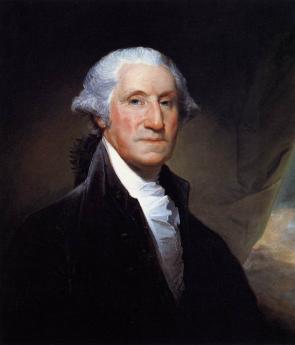
|
| George Washington |
During the first weeks of that exploratory period, Washington induced Congress to create a cabinet and the first four cabinet positions, even though the Constitution did not mention cabinets. It all was explained as an "implicit power", inherently necessary for the functioning of the Executive branch. Soon afterward, Alexander Hamilton as Secretary of the Treasury proposed the creation of a national bank. Madison and his lifelong friend Thomas Jefferson were bitterly opposed, using the argument that creating banks was not one of the enumerated powers granted by the Constitution. Hamilton's reply was that creating a bank was an "implicit power" since it was necessary for running the federal government. Of course, Hamilton and Jefferson both had other unspoken motives for their position: for and against promoting urban vs. rural power, for and against the industrialization of the national economy, and dominating the states in matters of currency and financial leadership. It empowered a national rather than a confederated economy.
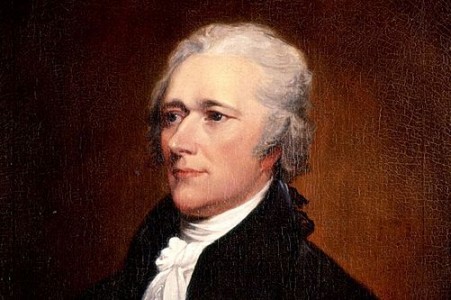
|
| Alexander Hamilton |
For Madison, the legalism probably carried considerably more weight than it did for Jefferson and Hamilton because it demonstrated the enduring consequences of being vague about the boundaries of any constitutional restriction. If this loophole got firmly established, it might reduce the whole federal system to a laughingstock. In order to promote the "general welfare", anything at all could be called an implicit power, and both separation of powers and enumerating federal powers would soon become quaint flourishes. The whole Constitution might fall apart in endless debates. On a personal level, Madison's highest achievements would have to be supplanted by something more practical. Besides which, Madison was a Virginian, a rich slave-holding farmer, and a young politician, seemingly on the verge of a promising career which might easily lead to the presidency for himself. Hamilton his most visible opponent, was already proposing a tax on whiskey which would almost surely antagonize farmers to the west, and assuming the Revolutionary debts of the states was equally divisive.
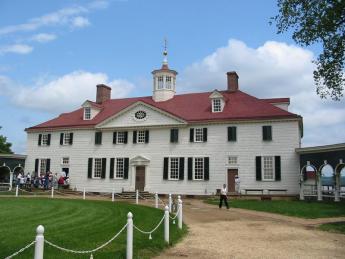
|
| Mt. Vernon |
As matters eventually worked out, the main disputants made ostensible constitutional arguments, while the real political dispute would be settled by a political deal struck at a dinner. It traded relocation of the national capital to Virginia, for the assumption of the debts of all states (when Virginia had already paid off its debt.) Location of the capitol opposite George Washington's home at Mt. Vernon also took care of difficulties coming from that direction. By the time the uproar about this arrangement subsided, the precedent for settling the inherent conflict between enforcing Constitutional limitations versus enlarging their boundaries had been set. The most opportune time for stricter interpretation was fading while the most likely advocates of it were restrained by their own example. The negotiation was a little unseemly, and probably encouraged similar decisions to migrate to a less conflicted body, which eventually John Marshall would define as the U.S. Supreme Court.
Why Jefferson Hated Banks and Hamilton Loved Them
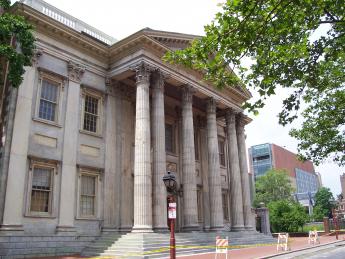
|
| First Bank of Philadelphia |
Some things are easier to understand when they start before they get complicated. That's true of banking, where it can now be puzzling to hear there was a strong inclination to forbid banks by law. While we were still a colony, the British discouraged bank formation, fearing strong concentrations of wealth at a great distance could lead to ideas of independence. Anti-bank sentiment was thus a Tory characteristic, although as the Industrial Revolution progressed, Karl Marx and Fredrick Engels stamped it permanently with a proletarian flavor. Large owners of farmland were displeased to see their power weakened by urban concentrations of wealth, while poor recent settlers of America wanted to buy and sell land cheaply, so they favored a currency that steadily declined in value. People with wealth have an incentive to keep money stable, but people with debts have an incentive to pay them off with cheap money. After these battle lines clarified and hardened, the debate has transformed from an original dispute about banks, into catfights about a strong currency. As Rogoff and Reinhart have pointed out, inflation is a way for governments to cheat their citizens, devaluation is a way of cheating foreigners. Naturally, politicians prefer to cheat foreigners, but national tradition curiously seems to favor one style more than another. Essentially, they are the same thing with the same motive, although outcomes may be different. One is restrained by fear of revolution, the other by fear of an international currency war.
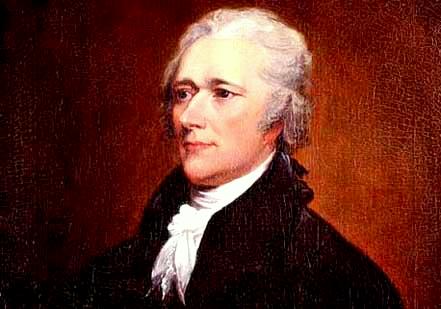
|
| Alexander Hamilton |
While George Washington was America's first president, Alexander Hamilton was Secretary of the Treasury and Thomas Jefferson was Vice President; the cabinet contained only four members. Although Hamilton was born poor, the bastard brat of a Scottish peddler in the view of John Adams, he had learned about practical finance in a counting-house, and later gained Washington's confidence on the headquarters staff; Washington eventually made him a general. Jefferson was part of the slaveholding Virginia planter elite, elegant in writing style and knowledge of art and architecture, sympathetic to the French Revolution; eventually, he died bankrupt. Early in the Washington presidency, Hamilton produced three long and sophisticated white papers, advocating banks and manufacture. Jefferson was opposed to both, one facilitating the other, which we would today describe as taking a green, or leftish position. Banks were described as instruments for accepting deposits in hard currency, or specie, and lending it out as paper money. The effect of this was a degrading of gold into paper money, or if not, an inflationary doubling of currency. Banks would be able to create money at will, a capriciousness Jefferson felt should be confined to the sovereign government. Just keep this up, and one day some former banker from Goldman Sachs would be able to tell the President of the United States, "The bond market won't let you do that." In this sense, the bank argument became a dispute about public and private power.
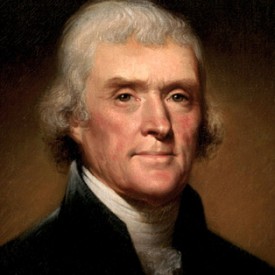
|
| Thomas Jefferson |
Hamilton, a former clerk of a maritime counting house, could observe that sending paper money on a leaky wooden boat kept the real gold in the counting-house even after the boat was lost at sea. To him, prudent banking transactions enhanced the safety of wealth, reducing risk rather than enlarging it. Later on, he learned from Robert Morris that a bank floating currency values on the private market disciplined the seemingly inevitable tendency of governments to water the currency. Once more, banks should enhance overall safety in spite of being vilified for creating risk. To both Hamilton and Jefferson, all arguments in an opposing direction seemed specious, designed to conceal ulterior motives.
Banks came and went for a century. By the time they almost were a feature of every street corner, banks were taking paper money (instead of gold and silver) as deposits and issuing loans as paper money, too; the gold was kept somewhere else, ultimately in Fort Knox, Kentucky. With experience, deposits could stay with the bank long enough that only a rare run on the bank would require more than 20% of the loans to be supported by physical ownership of gold. By establishing pooling and insurance of various sorts, banks persuaded authorities it was safe enough for them to hold no more than 20% of their loan portfolio in reserves. By this magic, loans at 6% to the customer could now return 30% to the bank. A few loans will default, a reserve for defaults was prudent, so the bank with a 2% default rate could settle for a 20% return rate. A bank which was deemed "too big to permit it to default" was invisibly and costlessly able to trim its reserves, and thus receive a 25% return by relying on the government to bail it out of an occasional bank crisis. With this sort of simple arithmetic, it is easy to see why multi-billion dollar banks were soon arguing that 5:1 leveraging was too small, a reserve of gold and silver was unnecessary, and the efficiencies of large banks were needed to compete with big foreign banks. By the time of the 2007 crash, many banks were leveraged fifty-to-one, which even the man on the street could see was over-reaching. The ideal ratio was uncertain, but 50:1 was certain to collapse, probably starting with the weakest link in the chain.
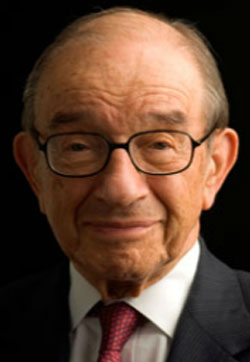
|
| Alan Greenspan |
This brings banking arguments more or less up to date. Except in 1913, an "independent" Federal Reserve Bank was created. It was a private reserve pool balanced by a public partner, the government. In time, the need for gold and silver was eliminated entirely, by the wartime Breton Woods Agreement, and the Nixon termination of it. The predictable inflation which could be expected to result from a world currency without physical backing was prevented by allowing the Federal Reserve to issue, or fail to issue as necessary, the currency in circulation. This substitution was deemed possible by having the Fed monitor inflation, and adjust the flow of currency to maintain a 2% inflation rate. Although 100% paper money was an historic change, it has endured; it has withstood efforts by the politicians to re-define inflation, undermine the indices of its measurement, and brow-beat the vestal virgins appointed to defend the value of the dollar. The old definition of money has changed: it is no longer a store of value, it is only a medium of exchange. The store of value is a nation's total assets. Jubilant politicians have added an additional burden of preventing unemployment, to the original one of defending price stability. In practical terms, the goal is defined as maintaining a 2% inflation rate, while achieving a 6.5% unemployment rate. It remains to be seen whether the two goals can exist at the same time, particularly if the definitions of inflation and unemployment become unrecognizably undermined.
And it even remains to be seen whether the black-box system can be undermined from within. The Federal Reserve is so poorly understood by the public that his enemies now accuse Alan Greenspan of causing the present recession. It is argued that the eighteen years of banking quiet which his chairmanship enjoyed, was only gradual inflation, deeply concealed. It is contended that the unprecedented steady rise of the stock market during those eighteen years was financed by a small but steady loosening of credit by the Federal Reserve. Perhaps what this means is: the definition of inflation must be tightened so its target can be made and adjusted, not to 2%, but to some number slightly less than that, measured to three decimal places. Or that the 6.5% unemployment target must be jettisoned in order to preserve the dollar. With that prospect including international currency wars as its corollary, it will be an interesting debate, and immigration policy is related to it. Because one alternative could become the abandonment of the fight against inflation, in order to sustain the new objective of reducing unemployment, Jefferson would have won the argument.
REFERENCES
| The History of the United States: Course 8500, 15 Hamilton's Republic: ISBN: 156585763-1 | The Great Courses |
| This Time Is Different: Eight Centuries of Financial Folly: Kenneth Rogoff, Carmen M. Reinhart: ISBN-13: 978-0691152646 | Amazon |
John Marshall Decides Three Cases
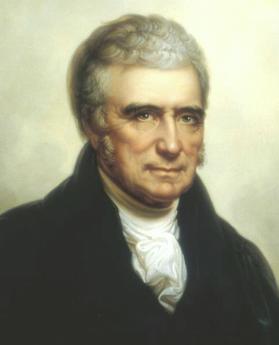
|
| Chief Justice John Marshall |
John Marshall, taking sixteen years to do it, transformed the Constitution internally into the cornerstone of the Rule of Law, making the legal profession its guardian. Nine respected justices now essentially hold lifetime appointments as bodyguards of the structure Marshall designed, with all lawyers acting as lesser officers. Nevertheless, four personal things are important to remember. Marshall had been a Revolutionary soldier, he wrote a five-volume biography of George Washington, he positively hated his first cousin Thomas Jefferson. And his thirty-five-year tenure as the third Chief Justice of the U.S. Supreme Court coincided with some of the dirtiest national politics the nation has ever seen. Marshall's enthronement of Chief Justice control of the federal courts was tolerated because it promoted them both to national power. And when this tough politician had earned the loyalty of both the court system and the legal profession to himself, he transformed the image of the Constitution from a contract between the states into an American Bible for the Rule of Law. Incidentally, he could beat anyone at horseshoes, a game requiring a winner to be both strong and precise. Much of his achievement grows out of three pivotal Supreme Court cases, which today might just as well be regarded as amendments to the Constitution.
 In all Cases affecting Ambassadors, other public Ministers and Consuls, and those in which a State shall be Party, the Supreme Court shall have original Jurisdiction. In all the other Cases before mentioned, the Supreme Court shall have appellate Jurisdiction 
|
| Article 3, Section 2.3 |
Marbury v Madison (1803). The first of Marshall's three cornerstone cases involved the Chief Justice himself. After being defeated for reelection to the Presidency in 1800 by Thomas Jefferson, President John Adams hastened to fill up remaining judicial vacancies before Jefferson his successor could be inaugurated, in a maneuver described as "appointing midnight judges". In a sense, Marshall's appointment as Chief Justice had also been in anticipation of the coming eviction of Federalist office holders, so he was himself more or less a midnight judge, destined to become by many years the last Federalist to survive in office. In any event, he was Adams' Secretary of State, soon to be replaced by James Madison, who would then assume the duty to deliver judicial appointment papers to new judges. Marshall was an impassioned Federalist, bitter about the defeat of his party, nursing personal hatred for Jefferson after years of family differences. To say he had a conflict of interest is not only to brush hurriedly by the issue but also to dramatize what loose judicial standards prevailed at the beginning of his three-decade tenure as Chief Justice.
Appointment papers for the midnight judges were completed and lying on the desk of the Secretary of State when the Presidency changed hands from Adams to Jefferson. Had he known what was coming, Secretary of State Marshall would surely have hastened to deliver the papers, but he had not done so. His successor as Secretary of State, James Madison, on the orders from Jefferson, refused to do it, so Marbury sued for a writ of mandamus, or order from a court to deliver the documents. By this time, Marshall was in a new role of presiding over the Supreme Court, fearful to attack Jefferson head on, but nevertheless eager to command the most humiliating obedience from him. Using the technicality (actually, the plain language of the Constitution) that the request was made to the wrong court, mandamus was rejected by Marshall. However, he went on to say in a judicial aside (obiter dictum) that if the right request had come to the U.S. Supreme Court properly , the Court would have approved it. Thus, in one dazzling maneuver at the beginning of his term, Marshall simultaneously asserted the Court's right to review Presidential and Legislative actions, reproved Jefferson for his ignorant conduct, and boxed him into submission by seemingly letting him win a minor case, but one he could be sure would soon have been followed by major ones if the President somehow evaded this decision. Furthermore, he dazzled the legal profession with this tap-dance, guaranteeing their applause by greatly enhancing the status of judges within the Republic, especially compared with the President. And, it should be mentioned, he suppressed public outcry by performing this set of actions in full public view, cloaked within incomprehensible legal garments. The public could see he had done something important, which only lawyers would completely understand. Marshall plainly began his term by demonstrating the full meaning of the rule of law, and his own position astride that law. The main point was that when ordinary judges include offhand commentary in a decision, it might be ignored. But when the Chief Justice of the United States speaking for the majority of his court, makes a legal observation, it would be a brave lawyer indeed who would bring an action in conflict with it. And as for the President and Legislature, Marbury v Madison had also just brushed them aside. It was all done properly, using civil language but deadly logic.
Martin v Hunter's Lessee (1816). This case might be a little more understandable if retitled as "The Heirs of Lord Fairfax v Fairfax County, Virginia". A Virginia law permitting the seizure of Tory property, written decades before the Constitution, asserted its precedence to Federal Law, and therefore its precedence over Federal Law. (To this day, Virginia never quite forgets it was once the largest, richest state, founded nearly two centuries before the Constitution.) Like Marbury v Madison, the case is clouded by Marshall's personal involvement since the Chief Justice had signed a contract with Martin to buy the land himself. This impairment to the case's claim to legal cornerstone status is not entirely annulled by Marshall recusing himself, turning authorship of the opinion over to his faithful disciple Justice Story. Furthermore, the judicial establishment of the principle that an international Treaty (in this case, the Jay Treaty) takes precedence over an Act of Congress is one the nation may still someday come to regret, if movements for "International human rights" and "universal international law" continue to gain popular traction. Such movements are numerous, including international law for the conduct of wars, and the universal Law of the Sea.
The United Nations might now be more of a force if they had not stumbled over the franchise of hundreds of nations, each given an equal vote. To expect the major nations of the Security Council to obey the single-vote mandates of dozens of small African nations is to agree in advance that the UN must be disregarded. Nevertheless, Martin v Hunter's Lessee did eliminate an escape route from Supreme Court domestic domination which might have proved troublesome in Civil War nullification disputes, or in legal cases for which national uniformity is important. On appeal, the Supreme Court finally declared its absolute supremacy over State courts as a general matter, clarifying a number of legal loose threads which had been keeping the precedence issue alive.
McCullough v Maryland 1819) The facts of this case seem considerably simpler than Marshall's long and thundering opinion of them. Indeed, the opinion sounds more like an oration on the meaning of the Constitution, or an enraged obiter dictum , than a terse opinion that the State of Maryland's legislature had passed an unconstitutional law. His remarks are indeed an exposition on the general thrust of the Constitution, foreshadowing many disputes leading up to the Civil War. In effect, it began to make it clear to the slave states that their states-rights viewpoints might conceivably be upheld on a battlefield, but never in a Courtroom. It is thus an opinion which every law student should read several times, and every citizen would profit from reading at least once. At Gettysburg Abraham Lincoln was to restate the principles in concise, even poetic, language. But long before that, Marshall had stood upon a legal mountain, declaiming them in thundering detail.
 The Congress shall have power---To make all Laws which shall be necessary and proper for carrying into Execution the foregoing Powers, and all other Powers vested by this Constitution in the Government of the United States, or in any Department or Officer thereof. 
|
| Article 1, Section 8, clause 18 |
The United States Congress had chartered the Second Bank of the United States in 1816, which then established a Baltimore branch in 1818. There was a national financial panic in 1818, which probably hastened local bank lobbyists to the Maryland Legislature, looking for relief from the unwanted federal competition. Maryland passed a law imposing a fairly high state tax on the operations of the new federal bank. McCullough, the cashier of the federal branch bank, refused to pay the tax. On appeal, McCullough maintained the tax was unconstitutional, and the U.S. Supreme Court upheld him, ordering the opinions of the Maryland courts to be reversed. John Marshall wrote the opinion and took the occasion to set forth his views on constitutionality. Point by point, my point.
What it meant, the old Federalist in a sense intoned, was the states had lost power at the Constitutional Convention and were not going to get it back. The founding fathers and George Washington, in particular, had been uneasy about accusations they had gone beyond their mandate in even calling the Philadelphia Convention. The Articles of Confederation had declared its own provisions to be "perpetual", and the states had previously bound themselves to that. True, the Confederation Congress had authorized a study of how to improve the Articles, but it had never gone so far as to suggest the Philadelphia Convention toss them out.
When the Philadelphia Convention was finishing up its work, Gouverneur Morris had written a preamble beginning with "We the People" in order to assert that its authorization came from the people and not from the governments directly confederated under the Articles, which was true. The ratification process was carefully steered into the language which asked for ratification by the people, acting by states, and from which elected state officers were excluded. The state ratification conventions heard considerable concern about legitimacy voiced by those who probably really disapproved of one feature or another. But overall it was more importantly true that the people at the ratification conventions gradually grew intrigued by the mechanics of self-rule and appreciative of the depth of thought they could see the founders had displayed. By the time the necessary number of states had ratified, public enthusiasm was genuine, while the opposition was squelched into silence or else indirection of speech. Legitimate opposition was acknowledged by specifying that ratification was conditional upon the adoption of a Bill of Rights. Finally, after the new government was subsequently tested by wars and near-wars, pratfalls and triumphs interspersed, the opposition was not only widely judged to have had its say, but its own chance to stumble. After nearly three decades of this, Marshall seems to have decided it was time to lay down the law. All of that is behind us, he said in effect state governments have knuckled under, and the Constitution is indeed triumphant. It was time to snuff out the grumbling and the scheming, and to declare invalid any future attempts at evasion.
The constitutional compromise had confined federal power to a few defined activities and whatever else was proper and necessary within those powers. It did not limit Congress to "absolutely" necessary and "absolutely" proper actions which might heedlessly confine such limited powers to awkward and inefficient behavior. Rather, the Constitution identified areas of power where the two types of government were best suited, expecting them to do their best without hampering each other with turf battles. If Congress decided that banks, or chartered corporations, were desirable means of promoting commerce which had been left unspecified in the Constitution, states could not for that reason alone interfere with federal use of them. States could charter any corporations and banks they pleased, and the federal government could do the same, but only if necessary and proper. There were many other features left unspecified, proper enough for the states to do, but which the federal government might also do -- when necessary and proper to implement its enumerated powers. It was, in short, improper for states to interfere with what was desirable for the national government to do unless the Constitution prohibited it. And the U.S. Supreme Court would be there to decide close cases.
In particular, the states were not to undermine the federal government in the legitimate pursuit of its enumerated powers. Of the strategies available, taxation was particularly vexing, since the difference between a fair tax and a burdensome one can be a matter of opinion. Ultimately, the power to tax is the power to destroy, and it would be better not to have the states taxing the national government in its operations, like issuing currency. The exception might be made for traditional state activities like taxing the bank's real estate. But if the states can tax currency operations, they can set any price, taxing anything if they set about to undermine legitimate Federal activities; such hampering was not contemplated at the Philadelphia Convention, and it will not be tolerated by the courts. Legislatures whose sovereignty ends at their state borders have no right to tax the entire nation which extends beyond those borders. And since state courts must follow state interests and state constitutions, their rulings are subordinate to those of the federal courts, as well.
With the one possible exception of international treaties, all government entities which might challenge the Supreme Court had by now had their noses rubbed in subordination to it. John Marshall went a step further. He even invented a new way to fashion laws which no one at all could challenge: as long as he spoke for the majority, the asides and comments of the Chief Justice in his obiter dicta had become a sort of supreme law.
Talkie Revolution
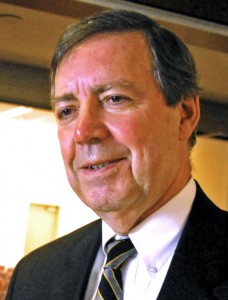
|
| George Strimel |
George Strimel dropped by the Right Angle Club recently, showing us a marvelous video of the era which ended in October 1927. It's fast fading into the past, and others remember 1929 as a more memorable date. Some have heard of the Roaring Twenties, prohibition, repeal, and Bobby Jones the golfer. But in entertainment circles, the end of the silent films is more celebrated as the turning point that matters. Why so? Why is the end of dark, flickering, silent movies such a big deal?

|
| Greta Garbo |
George Strimel, who has spent his life in public broadcasting, made it all come clear, while hardly saying a word. He just played his video.
George is one of the survivors of the roaring twenties and something of a venerated figure among those who care about silent films. There is quite a group who feel that silent films required more money, talent, and effort to produce than either vaudeville, which they replaced, or "talkies" which in their opinion undeservedly vanquished them at the box office. For one thing, there was a strong European presence among the opinion makers, bringing along memories of the recent "Great" war and the great awakening of Americans to modern European culture. We particularly favored British films, of course, but not because of their upper-class accents. They were part of the European conquest of American culture, along with Germans, Hungarians, French, and Italians. But as soon as talkies exposed their foreign accents, it was mainly the English who survived in the American market. Do you remember Cary Grant, Guy Kibbee, Basil Rathbone, and Mary Astor? The movie moguls, ever watchful for a profit, were very hesitant at first about Greta Garbo and Claudette Colbert.
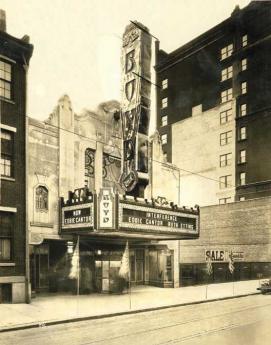
|
| The Boyd Theatre |
On a technical level, the actors and actresses found it difficult to function without whispered stage directions from the directors. It was harder, you had to memorize more, and consequently, it was more expensive to produce a talkie than a silent film. More than half of the artistic effect of silent films actually came from the dubbed-in background music, which told the audience they were approaching a tender moment or a stirring battle scene. The musical director began to play a much-diminished role in the product, and the actors really had to act out the meaning of a scene.
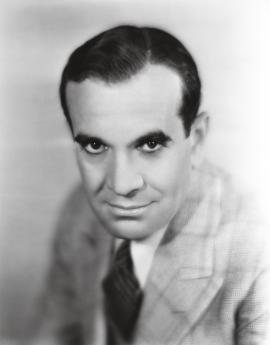
|
| Al Jolson |
And let's not forget the musicians who played live music in the gigantic movie palaces. At the time Al Jolson was performing in the Jazz Singer, there were over 22,000 union musicians who were about to be thrown permanently out of work. Philadelphia had the Erlanger, the Mastbaum and the Boyd, as well as a dozen smaller movie palaces who turned the theater musicians out of work, and then slowly died out themselves. Coming into Philadelphia on the trolleys was the thing to do with your evenings for another decade or two, but the writing was on the wall. The center of union musicianship was at Broad and Locust for a while; all during the Second World War there was union unrest and some Communist mutterings, centered in the old Adelphia Hotel. It was natural to blame that on the Academy of Music across the street, but unemployed movie theater musicians were a part of it, too.
Most of us think of that era in terms of World War II, the Great Depression, the 1929 Stock Market Crash, and other momentous events in history. But to some people, the turning point of our whole culture really began in October 1927, when Al Jolson astounded the world with the Jazz Singer. And nothing in the entertainment world was ever quite the same.
Quakers and Idolatry
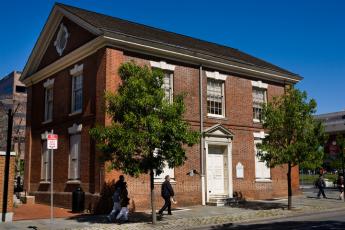
|
| Philadelphia's Quaker Meetinghouse |
There are about forty thousand bodies buried in Philadelphia's Quaker Meetinghouse grounds at Fourth and Arch Streets, which contain only two tombstones. The yellow fever epidemics of the era account for much of that, but it's nevertheless a striking portrayal of early Quaker aversion to anything resembling idolatry. It underlines this attitude by sharp contrast with more recent uproars about desecrating statues of Confederate generals in public spaces of the Old South, which even Robert E. Lee objected to constructing. They led plausibly to erecting and then defacing Union generals in Northern states as well; since it seemed natural for statue-desecration to evolve into an equal-opportunity demonstrations. A little primitive perhaps, but even-handed.
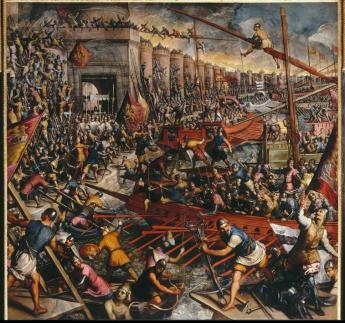
|
| The Fourth Crusade |
Worshiping graven images has a long history. You needn't be a public-statue expert to remember the terracotta Chinese soldiers are two thousand years old, and the Egyptian pyramids are even older. The chariot horses over the Brandenburg Gate make a stronger illustration of the idea, intertwined over the shorter length of Western civilization. Although carvings might be older, we also have a reasonably accurate history of the bronze statues of these horses. The technique evolved with different proportions of copper and tin, with other metals sometimes added, but the underlying idea is to make a hollow bronze statue, giving the appearance of a much heavier solid bronze one, apparently originating in the Greek islands off the coast of Turkey in the second Century. There were in fact two such statues, with different subsequent histories. The Fourth Crusade was the one where Western European Christian Crusaders invaded Constantinople the main eastern Christian capital, never getting to the Holy Land. Even if they started with good intentions, Christians were content to carry off Christian booty, including the bronze horses. One set was sent to Venice and the other set got to the Christians in Southern France.
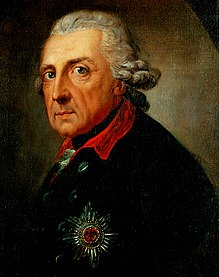
|
| Frederick the Great |
Frederick the Great put one set in the center of Berlin. In time, Napoleon took both statues to Paris, but later returned them. The one in Berlin, or perhaps copies of it eventually came to symbolize Nazi Germany, but later Checkpoint Charlie. The details of these conquests and adventures are not not of much consequence today, leaving only the central point that someone conquered someone else, and God must love the victor. The main point became victory, dogmas have been forgotten. Only the Quakers seem to be willing to mention another main point: Thousands of people died for these statues, but very few tourists could now tell you why. The Quakers reached a conclusion we might reconsider. Pulverize all statues and churches, thus saving the world from future grief. Since the Quakers also were first to free the slaves but later mostly disapproved of the Civil War, the irony was not lost on them. But most of their grandchildren reversed the assessment. It's too early to say how another generation will be persuaded to feel.

|
| General Lucius Clay |
During the War against Nazi Germany, my uncle was General Lucius Clay's room-mate, and the two of them were appointed to oversee de-Nazification of the defeated Germans by a third Pennsylvania Dutchman, Dwight Eisenhower. The concept was devised by Henry Morgenthau, then Secretary of the Treasury, in a famous letter urging a program to make Germany into an agricultural nation "for a thousand years". Accordingly, my father's brother oversaw the public burning of tons of postage stamps containing swastikas, plus every photograph of Adolph Hitler the Army could locate, along with similar symbols of the Third Reich. Nearly eighty years have passed since then -- essentially two generations, but it still remains illegal to possess such documents. Evidently, a sense of vengefulness so regularly outlasts its provocation, that passing the grievance on to children is usually hard to justify.
Tax Legislation--Just A Condominium Squabble
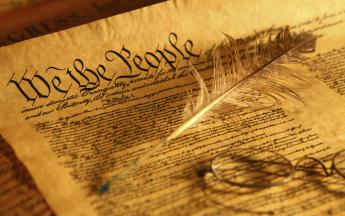
|
| Constitution |
Congress meets every year and, almost every year, most Americans are more interested in athletic games. People who make politics their profession may be more involved more of the time, but eventually, it is taxes which supply the force to involve the public. Occasionally it is the Constitution, but the Constitution mainly establishes structure, and people are generally satisfied with the present structure. There is limited time for debate, and to tell the truth, limited patience for it so the party leadership is left with the power to manipulate timing around holidays And the leaders organize the limited "floor" time carefully to preserve their control of it. Right now is one of those corners of our time, when an important issue gets crowded next to a holiday recess, the issue gets explained to the public, and public opinion is closely divided at first. It all sounds familiar, but there are important particularities.
Everybody is affected, everybody thinks he knows what George Washington thought. We had once just finished the Revolutionary War, almost losing that war because we had so much trouble agreeing to tax ourselves, to defend and govern ourselves thereby. When the Continental Congress abandoned Philadelphia to the British in 1779, only Robert Morris stayed behind as acting President, and never forgot the dreadful experience of governing without a government. In fact, about five future Constitutional delegates were trapped by an angry mob in the upper floors of James Wilson's house at the so-called Battle of "Fort Wilson". There was no need for these patriots to debate later about the need for taxes, law or order. This experience settled the tax issue for them, permanently.
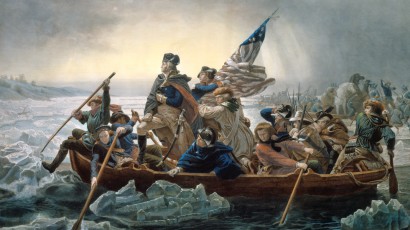
|
| Revolutionary War |
A whole host of tax issues are vitally important to someone somewhere, but the tax issue dominates almost all three hundred million citizens of every age and occupation. lowering by how much is desirable for corporate taxes, and lowering by how much is ideal for federal taxes shared with state and local governments. Corporations were then a new and unanticipated way to run a business, and generally, a more efficient way, although not a perfect one. About half the country half-believes it is urgent to go in opposite directions on details and divide in opposite directions on a subject, but the other half is suspicious of some hidden agenda. There probably isn't enough slack in the systems to do split the difference. If we try to change, we dispute how much to change. In this case, we have the example of southern Ireland, which went too far in lowering corporate taxes to 12.5% in a single step. It seems simple enough, but we dispute who gets the credit, and most of the leadership is fearful of getting too far ahead of the public. The Civil War is the only time in our history when compromise wasn't sufficient, and in retrospect, it probably might have been handled without a war.
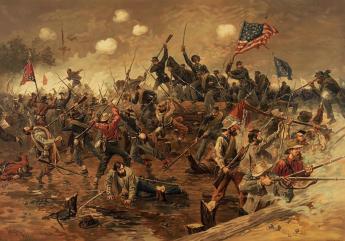
|
| The Civil War |
The result needs improvement because of repeated patching, so simplification is desirable but not paramount. It would be nice to stop gerrymandering, but no one proposes a feasible way, as is true of the narrow balance between the two parties. It is clear that the Congressional power of the purse is weakened by overspending the budget and then demanding that we avoid a default by funding an unauthorized deficit. Since it is unclear how to accomplish these three structural approaches peacefully, we probably can't do them. So we will probably resort to half-measures, with fuller measures after we can see what happens. The risk is that the North Koreans, or the Saudi princes, or the defeated Russians, or some other foreign power will solve the problem for us in the meantime. This approach amounts to buying some time by surrendering some control, and we may be sorry we did it. But we keep on building more condominiums, so it must have some utility.
| Posted by: kitururuprint and artist work | Jan 8, 2013 7:31 AM |
36 Blogs
Adrift With The Living Constitution
.jpg) With apologies to any political tricks left unmentioned.
With apologies to any political tricks left unmentioned.
Unwritten Constitution
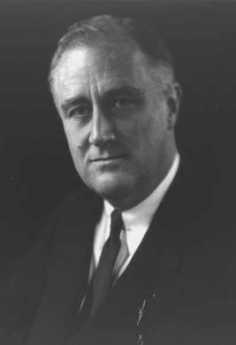 The Twenty-second Amendment to the U.S. Constitution serves an excellent purpose, even though the 80th Congress which proposed it may have had quite different motives.
The Twenty-second Amendment to the U.S. Constitution serves an excellent purpose, even though the 80th Congress which proposed it may have had quite different motives.
Constitution V: The Unforeseeable
The sturdiness of the American Constitution emerges from surveying the way it copes with huge changes which could not possibly have been foreseen.
Revising, Amending, and Skirting The Constitution
 If you don't like what The Constitution says, what can you do about it?
If you don't like what The Constitution says, what can you do about it?
Unconstitutionality of Otherwise Desirable Laws
 President James Madison's veto message on Internal Improvements Bill (March 3, 1817) makes a powerful statement about states rights and the limitation of federal powers.
President James Madison's veto message on Internal Improvements Bill (March 3, 1817) makes a powerful statement about states rights and the limitation of federal powers.
Constitutionality of the Monetary System
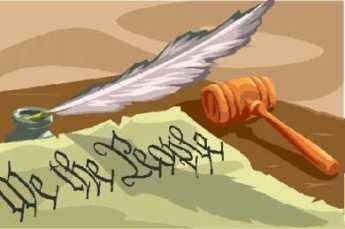 The Constitution fails us when no one is certain what to do about an important issue.
The Constitution fails us when no one is certain what to do about an important issue.
Owen Roberts: A Switch in Time
 His old law firm devotes a reception room in his name, but not everyone is pleased with his writing the documents establishing the Barnes Foundation, or his capitulation to Franklin Roosevelt's threat to pack the US Supreme Court.
His old law firm devotes a reception room in his name, but not everyone is pleased with his writing the documents establishing the Barnes Foundation, or his capitulation to Franklin Roosevelt's threat to pack the US Supreme Court.
Evolving Constitution
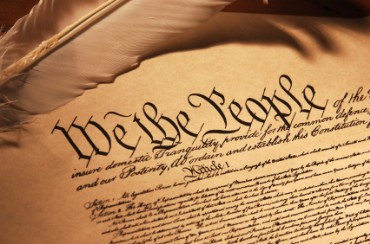 As soon as the 1787 Constitution was ratified, it started to be amended, and enabling statutes began to appear. Regulations are written by the Executive Branch eventually outnumbered the laws written by Congress, but they had the same force of law. Hundreds of Supreme Court decisions modified the original intent, ever so slightly. The direction of drift is often hard to recognize, but there are a few clues.
As soon as the 1787 Constitution was ratified, it started to be amended, and enabling statutes began to appear. Regulations are written by the Executive Branch eventually outnumbered the laws written by Congress, but they had the same force of law. Hundreds of Supreme Court decisions modified the original intent, ever so slightly. The direction of drift is often hard to recognize, but there are a few clues.
Unwritten Features of the Constitution
 Considerable anger is sometimes directed toward Judges who find unintended provisions in the Constitution. On the other hand, James Madison and some other Founding Fathers were careful to design the Constitution to create outcomes that are far from explicit.
Considerable anger is sometimes directed toward Judges who find unintended provisions in the Constitution. On the other hand, James Madison and some other Founding Fathers were careful to design the Constitution to create outcomes that are far from explicit.
Lowering the Taxes on Corporations
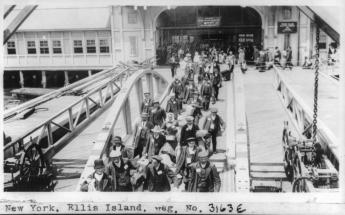 When Ireland lowered corporate taxes, inviting corporate immigration, and then precipitating an international financial crisis, it drew attention from others. Instead of warning them, it encouraged them to imitate Ireland.
When Ireland lowered corporate taxes, inviting corporate immigration, and then precipitating an international financial crisis, it drew attention from others. Instead of warning them, it encouraged them to imitate Ireland.
Corporations: Property, but also Immortal Persons
 There had been a few stockholder corporations, dating back to the Dutch East India Corporation and the Proprietors of West Jersey. The Industrial Revolution greatly encouraged this business structure, but America got the jump on the rest of the world by some happenstances.
There had been a few stockholder corporations, dating back to the Dutch East India Corporation and the Proprietors of West Jersey. The Industrial Revolution greatly encouraged this business structure, but America got the jump on the rest of the world by some happenstances.
Globalization
 Peter Alois, now retired from a career as an international economics envoy for the Department of Commerce, discusses free and fair trade, and other issues related to globalization.
Peter Alois, now retired from a career as an international economics envoy for the Department of Commerce, discusses free and fair trade, and other issues related to globalization.
Private Sector Disciplines Congress
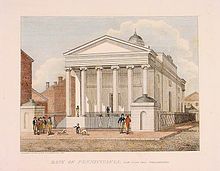 "The bond market won't let you" has disciplined American governments for two hundred years. Robert Morris invented the idea. The nation's first bank was really its first bond fund.
"The bond market won't let you" has disciplined American governments for two hundred years. Robert Morris invented the idea. The nation's first bank was really its first bond fund.
Morris Upended by a Nobody
 Adjusting to winning the Revolutionary War was almost as painful as losing it would have been. Especially for Robert Morris.
Adjusting to winning the Revolutionary War was almost as painful as losing it would have been. Especially for Robert Morris.
Second Mortgages Want to Be First
 Banks would not normally take sides between first and second mortgages. However, securitization took the first mortgages away from big banks, so they now have an incentive to seek political favor for second mortgages.
Banks would not normally take sides between first and second mortgages. However, securitization took the first mortgages away from big banks, so they now have an incentive to seek political favor for second mortgages.
Regulation Precision: Not Entirely a Good Idea
Obamacare's Constitutionality
Restoring the Gold Standard by Levering Judges' Salaries
xxxOur Unwritten Constitution
Void for Vagueness
After the Convention:Hamilton and Madison
Alexander Hamilton, Celebrity
Funding the National Debt
Our Federal Reserve : Biddle's Bank (2)
Vote Counting, Past and Future
Anatomy of an Urban Political Machine
American Succession
Chief Justice John Marshall Enters (Kettledrums and Crashing Cymbals)
Sanctity of Contracts
National Debt, Presidential Hat Tricks, Shale Gas and Argentina
Implicit Powers of the Federal Government
Why Jefferson Hated Banks and Hamilton Loved Them
John Marshall Decides Three Cases
Talkie Revolution
Quakers and Idolatry
Tax Legislation--Just A Condominium Squabble
 Obamacare's constitutionality was argued before the U.S. Supreme Court in late March, 2012.
Obamacare's constitutionality was argued before the U.S. Supreme Court in late March, 2012.
 Advocates of a gold standard may just have found an effective "gotcha".
Advocates of a gold standard may just have found an effective "gotcha".
New blog 2012-05-21 16:13:41 description
 Ignorance of the law is no excuse, but what about a law that is deliberately vague?
Ignorance of the law is no excuse, but what about a law that is deliberately vague?
 Two of the main authors of the Federalist Papers -- and hence of the Constitution -- ultimately proved to be acting on entirely different sets of principles, aiming for widely different goals.
Two of the main authors of the Federalist Papers -- and hence of the Constitution -- ultimately proved to be acting on entirely different sets of principles, aiming for widely different goals.
 He had the kind of taudry private life and flashy public behavior that Philadelphia will only tolerate in aristocrats, sometimes.
He had the kind of taudry private life and flashy public behavior that Philadelphia will only tolerate in aristocrats, sometimes.
 Funded debt, otherwise known as Capitalism, was a gift to the nation from Robert Morris, Jr.
Funded debt, otherwise known as Capitalism, was a gift to the nation from Robert Morris, Jr.
 Nicholas Biddle was a cultured gentleman who invented a lot of the structure of modern banking. But he got in Andrew Jackson's road.
Nicholas Biddle was a cultured gentleman who invented a lot of the structure of modern banking. But he got in Andrew Jackson's road.
 Voting law changes followed the contested 2000 Presidential election, but U.S. Supreme Court still comes out looking pretty good. Close elections will always cause problems, some of them brand new ones.
Voting law changes followed the contested 2000 Presidential election, but U.S. Supreme Court still comes out looking pretty good. Close elections will always cause problems, some of them brand new ones.
 If Philadelphia is typical, here is how urban machine politics works.
If Philadelphia is typical, here is how urban machine politics works.
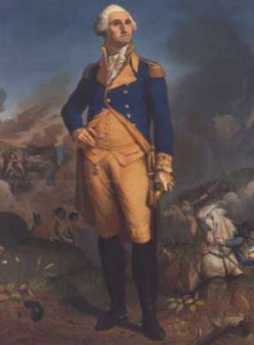 The rules for succession are not spelled out in the American Constitution, but what is implicit was revolutionary. Once again, credit George Washington.
The rules for succession are not spelled out in the American Constitution, but what is implicit was revolutionary. Once again, credit George Washington.
 John Marshall is known for some ground-breaking decisions, but many of his most influential pronouncements were just side comments with no force of precedent, obiter dicta , as they are called in legal circles. Marshall came to realize that if he told the legal profession what he firmly believed, no lawyer would think it was wise to conflict with the views held by the final level of appeal.
John Marshall is known for some ground-breaking decisions, but many of his most influential pronouncements were just side comments with no force of precedent, obiter dicta , as they are called in legal circles. Marshall came to realize that if he told the legal profession what he firmly believed, no lawyer would think it was wise to conflict with the views held by the final level of appeal.
 Article I of the Constitution, states in section10 that "No state shall......pass any law.....impairing the obligation of contracts, or grant any title of nobility." While the Constitution does not precisely say the Congress may not do so, or the President might not, it is definitely omitted from the list of limited federal powers. And it is the enduring expectation of the citizenry that the federal government is no more encouraged to impair the sanctity of contracts than to grant titles of nobility.
Article I of the Constitution, states in section10 that "No state shall......pass any law.....impairing the obligation of contracts, or grant any title of nobility." While the Constitution does not precisely say the Congress may not do so, or the President might not, it is definitely omitted from the list of limited federal powers. And it is the enduring expectation of the citizenry that the federal government is no more encouraged to impair the sanctity of contracts than to grant titles of nobility.
 The Franklin Inn Club discusses Obama's maneuvers in the context of what might have been a better approach.
The Franklin Inn Club discusses Obama's maneuvers in the context of what might have been a better approach.
 The Constitution strictly limited the number of federal powers, but did not define their boundaries. Intending to be flexible, it opened a permanent loophole.
The Constitution strictly limited the number of federal powers, but did not define their boundaries. Intending to be flexible, it opened a permanent loophole.

 Marbury v Madison (1803), Martin v Hunter's Lessee (1816), and McCullough v Maryland (1819) -- these three cases were the ones where John Marshall changed judicial history. Taught in law school as case law, they are more accurately moments of national history.
Marbury v Madison (1803), Martin v Hunter's Lessee (1816), and McCullough v Maryland (1819) -- these three cases were the ones where John Marshall changed judicial history. Taught in law school as case law, they are more accurately moments of national history.
 Al Jolson started a revolution by ending an era.
Al Jolson started a revolution by ending an era.
 Early Quakers were so opposed to idolatry, they wouldn"t allow tombstones.
Early Quakers were so opposed to idolatry, they wouldn"t allow tombstones.
 New blog 2017-11-11 02:52:56 description
New blog 2017-11-11 02:52:56 description